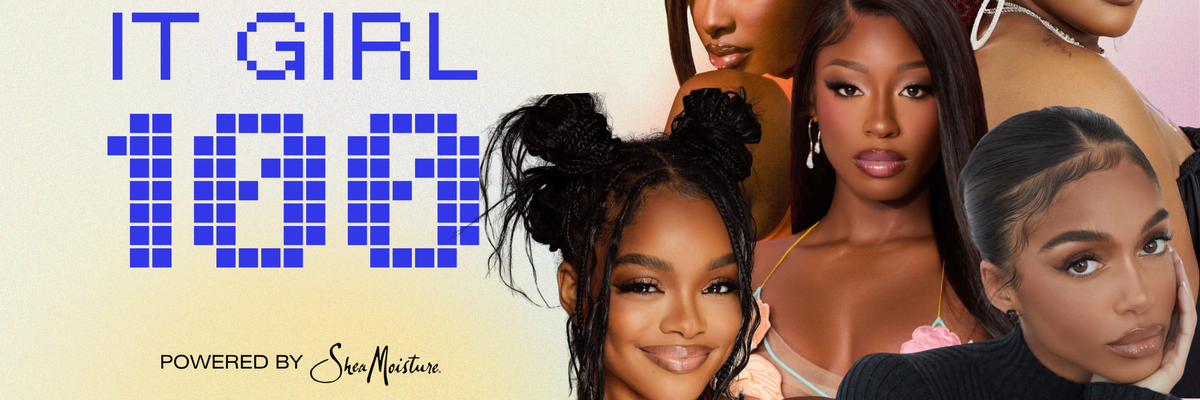
Winter is here and the colder weather can have some major effects on our skin. Much like protective styling is vital for our hair, we have to have a system in place to protect our skin. Moisturizing your skin is very crucial in the winter and most times, it requires us to switch up our products and use something a bit heavier and equipped to protect us from the cold and other elements.
In addition to sunscreen and serums, you need to have a good moisturizer in place, here are five great moisturizers that will help your skin conquer this winter:
Nubian Heritage African Black Soap Moisturizer, $14+
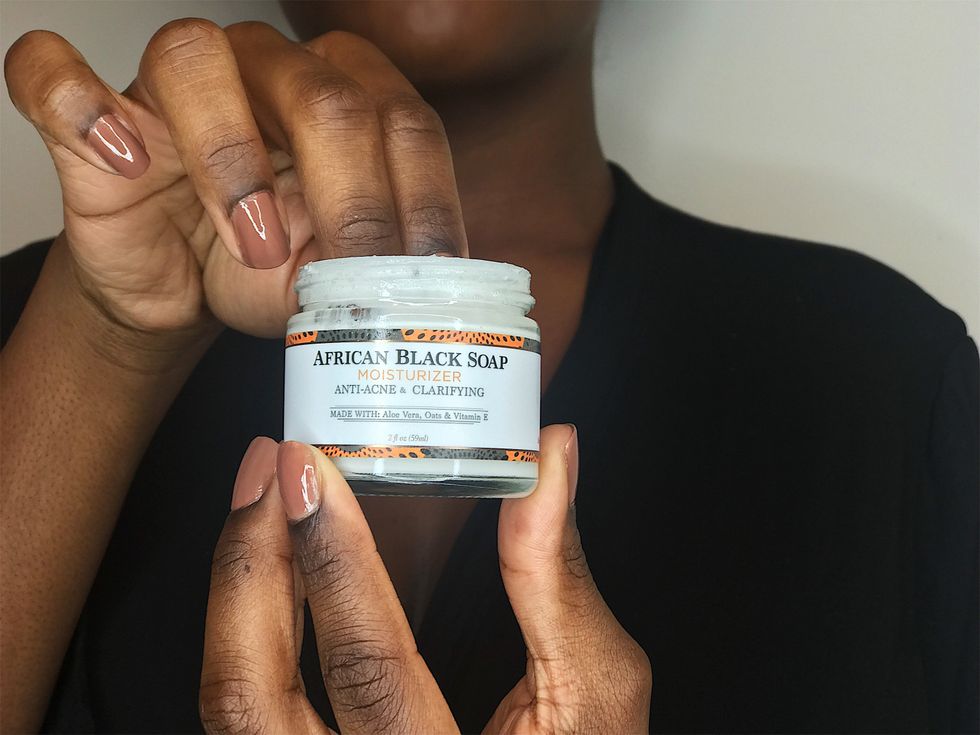
Writer Krissy Lewis/xoNecole
You can't go wrong with a thick cream-based moisturizer. The Nubian Heritage African Black Soap moisturizer is great for protecting your skin in the winter. It's a thick moisturizer that feels lightweight and leaves your skin feeling very moisturized without being greasy. It also makes your face feel very soft and it smells amazing. The only downside is that it does not include sunscreen, which isn't a big deal. You can mix it with your favorite sunscreen and it won't interfere with how it works.
This moisturizer is good for both day and night time, as well as for all skin types.
e.l.f.’s Daily Hydration Moisturizer, $8
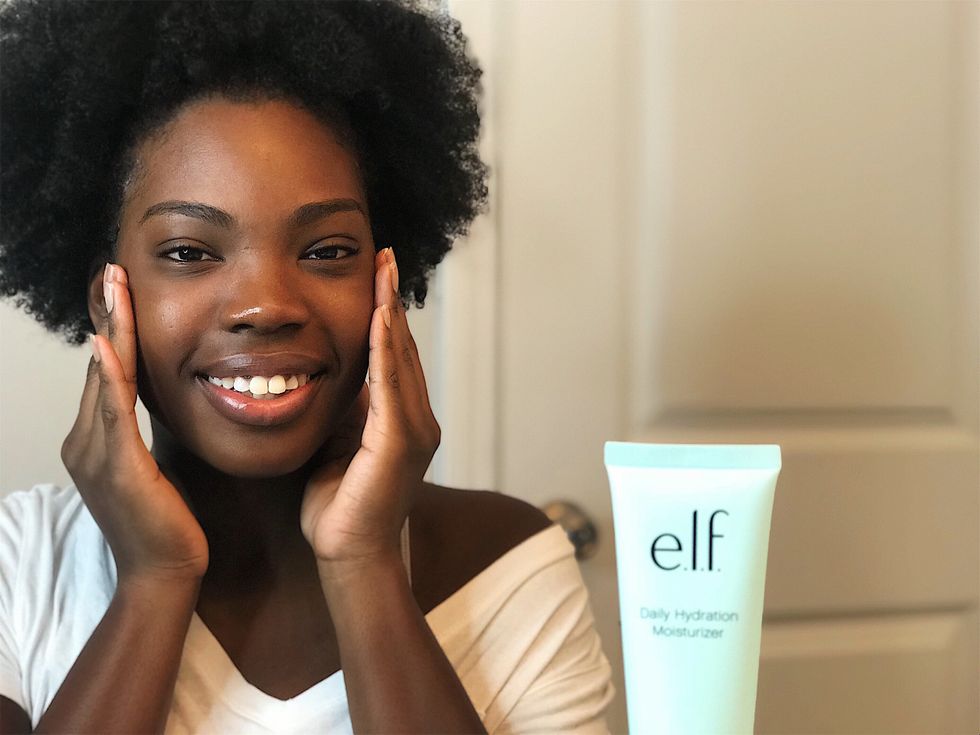
Writer Krissy Lewis/xoNecole
I have to say for the price, it's a steal. I paid about $8 for this moisturizer and it has an amazing fresh scent — it's soft, pleasant, and clean. The scented daily moisturizer is made with natural ingredients like purified water, jojoba oil, aloe, vitamin E, and cucumber.
The bottle recommended using a small amount however, I would use about two to three full pumps (if you have oily skin you may want to use less). When I used three full pumps, the moisturizer melted into my skin and gave me a beautiful natural glow. My face felt moisturized and smooth, it definitely did better than I expected. I would highly recommend for my beauties on a budget.
Neutrogena Hydro Boost Water Gel, $16+
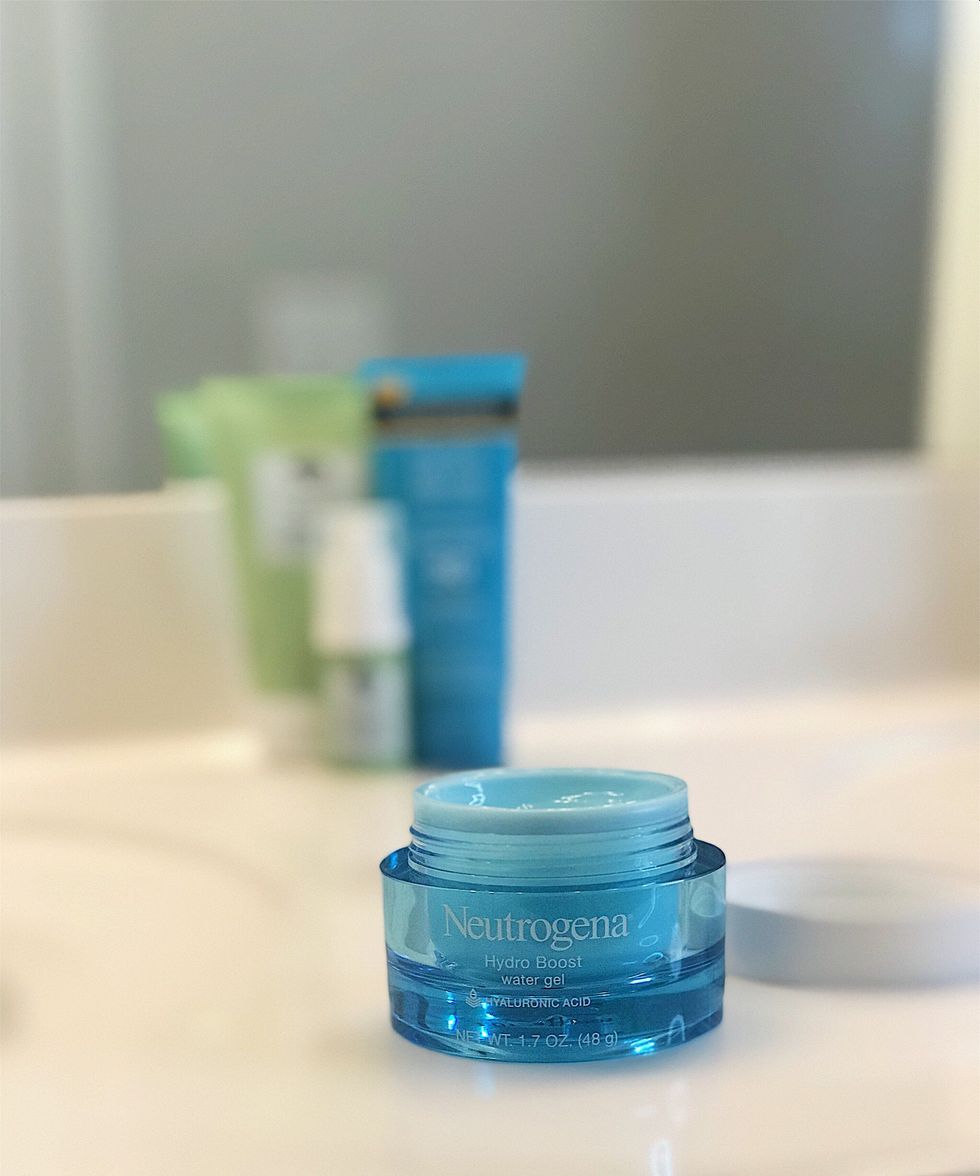
Writer Krissy Lewis/xoNecole
This is my first time trying a water gel and I did notice that there was a slight difference between the gel and the cream moisturizer. The gel moisturizer allows your skin to absorb moisture much quicker.
As far as the Neutrogena Hydro Boost Water Gel, I think it's best for people with oily skin, although it works fine for those who have combination/normal skin. I also think it would work for those who have dry skin, however, I do recommend either using a serum along with this gel or purchasing the Hydro Boost for extra dry skin. I used this gel for about a month and I noticed that it instantly moisturized, soothed, and softened my face. The gel is very lightweight and non-comedogenic, so it doesn't clog your pores. You can use this moisturizer at any time of the day; I usually use it in the morning along with the Neutrogena sunscreen and go about my day.
I wouldn't say this gel gives you a lot of glow, but it does brighten your skin and acts as a primer for your makeup.
Shea Moisture’s Bamboo Charcoal Hydrating Gelee Moisturizer, $11+
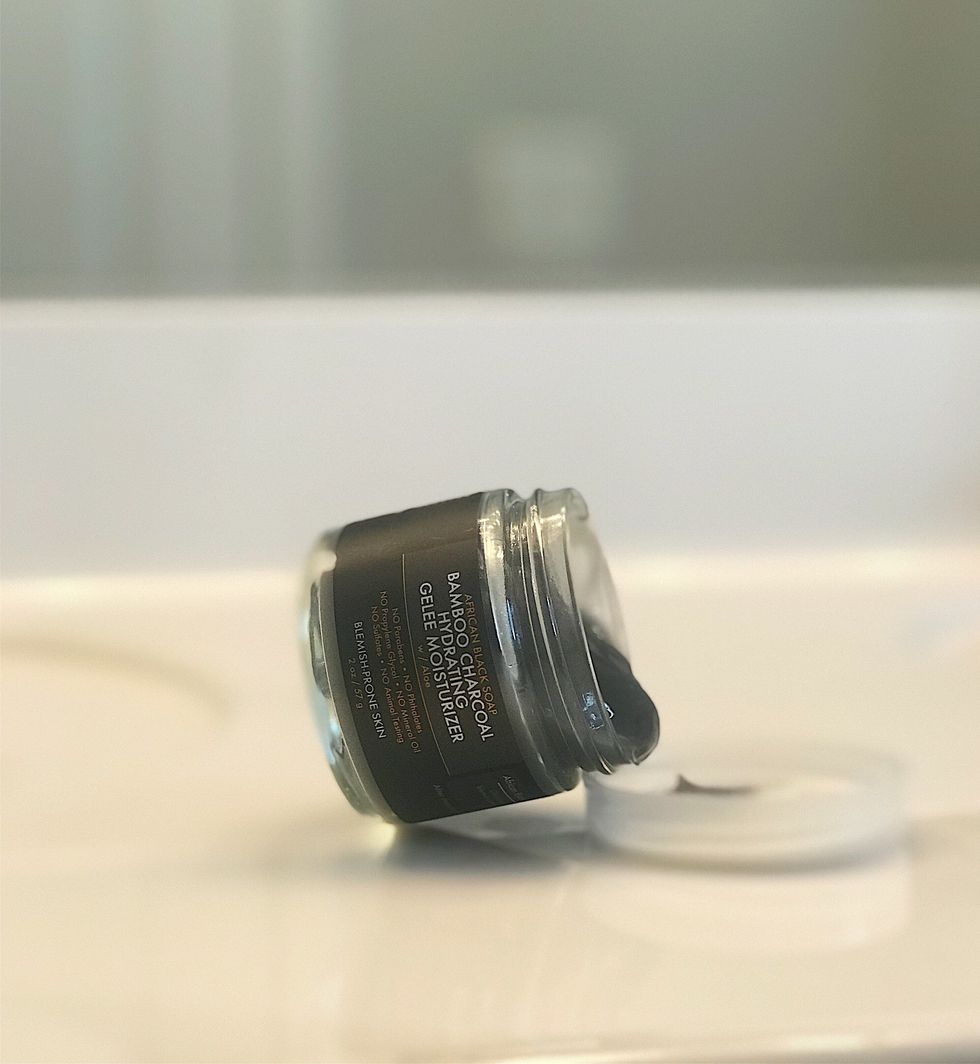
Writer Krissy Lewis/xoNecole
The Bamboo Charcoal Hydrating Gelee Moisturizer is made with African Black soap, bamboo charcoal, and aloe. Not only is this mixture good for moisture, but it can reduce the appearance of dark spots and acne.
This product is for people who experience frequent breakouts, however, if you have dry skin I won't recommend it. Depending on how dry your skin tends to get, it may not give you all the moisture you need. If you have oily, normal, and combination acne-prone skin, then this is perfect. It hydrates, soothes, and treats your skin; if used twice a day, you can see results in about 2-3 weeks.
Olay Total Effects 7 In 1, $7+
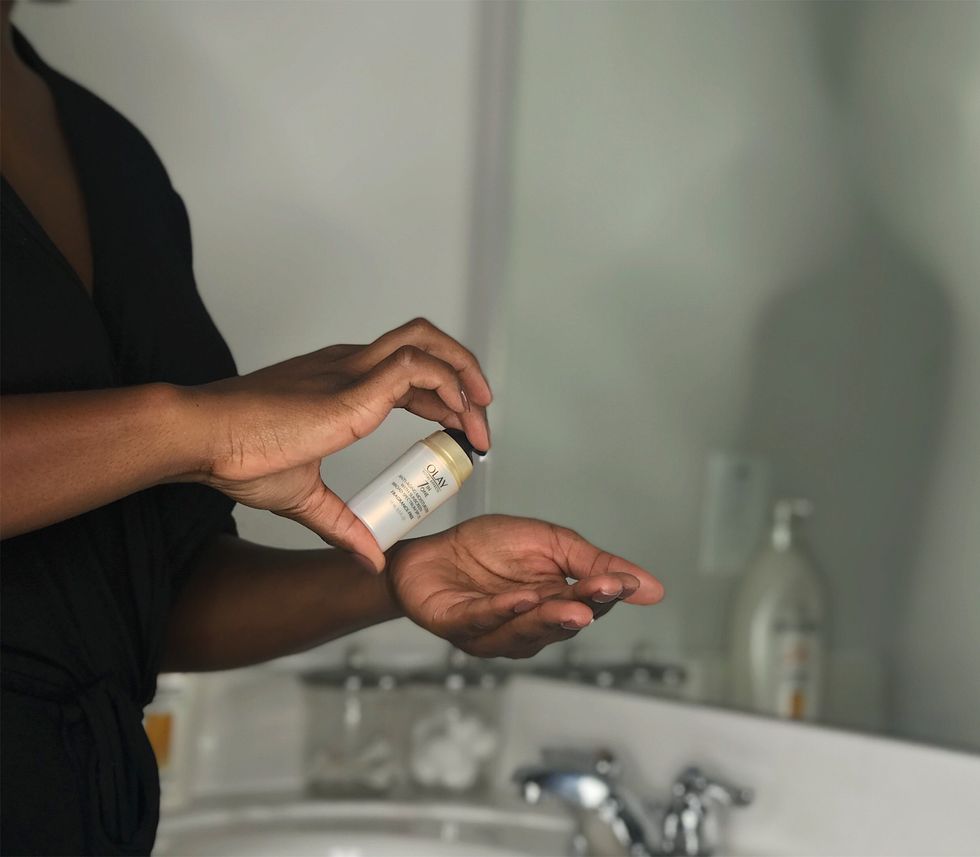
Writer Krissy Lewis/xoNecole
This moisturizer is on the pricey side for a drugstore moisturizer, but is still a good price for a skin care product. There's a lot of hype around this Olay moisturizer, so I purchased the trial size to see if it really works. I do think it's worth the hype, especially for the winter. It hydrates your skin, fights dry and aging skin, and it also includes SPF 15. This is a good product to get if you want one product that gives your skin what it needs.
The fragrance-free lightweight moisturizer is good for all skin types and adds a beautiful glow to your skin. To me, this is your everything in one product, and you don't need to use multiple products to get your desired look and achieve proper skin health (aside from cleansers and toners). I think it's worth the money, but what works for me may not work for you. I recommend trying the trial size first to see how you like it. A little goes a long way for this product and the smaller size should last for 1-2 months (depending on use).
What are some of your favorite tried and true winter skincare staples? We want to know in the comments below!
- 8 Best Drugstore Moisturizers 2018 - Hydrating Facial Moisturizers ›
- Best Drugstore Moisturizers for Dry Skin | InStyle.com ›
- 30 Best Face Moisturizers - Best Drugstore and Luxury Facial ... ›
- 8 Best Drugstore Moisturizers According to Dermatologists | InStyle ... ›
- Best Drugstore Moisturizers | POPSUGAR Beauty ›
- 12 Best Drugstore Moisturizers for 2018 - Drugstore Moisturizer ... ›
- These Drugstore Face Moisturizers Are Just As Good as the ... ›
- The 10 Best Drugstore Moisturizers of 2018 | Byrdie ›
- These Are the 10 Best Drugstore Moisturizers, Experts Say ... ›
- The Best Drugstore Moisturizers of 2018 Under $20 - Allure ›
Because We Are Still IT, Girl: It Girl 100 Returns
Last year, when our xoNecole team dropped our inaugural It Girl 100 honoree list, the world felt, ahem, a bit brighter.
It was March 2024, and we still had a Black woman as the Vice President of the United States. DEI rollbacks weren’t being tossed around like confetti. And more than 300,000 Black women were still gainfully employed in the workforce.
Though that was just nineteen months ago, things were different. Perhaps the world then felt more receptive to our light as Black women.
At the time, we launched It Girl 100 to spotlight the huge motion we were making as dope, GenZennial Black women leaving our mark on culture. The girls were on the rise, flourishing, drinking their water, minding their business, leading companies, and learning to do it all softly, in rest. We wanted to celebrate that momentum—because we love that for us.
So, we handpicked one hundred It Girls who embody that palpable It Factor moving through us as young Black women, the kind of motion lighting up the world both IRL and across the internet.
It Girl 100 became xoNecole’s most successful program, with the hashtag organically reaching more than forty million impressions on Instagram in just twenty-four hours. Yes, it caught on like wildfire because we celebrated some of the most brilliant and influential GenZennial women of color setting trends and shaping culture. But more than that, it resonated because the women we celebrated felt seen.
Many were already known in their industries for keeping this generation fly and lit, but rarely received recognition or flowers. It Girl 100 became a safe space to be uplifted, and for us as Black women to bask in what felt like an era of our brilliance, beauty, and boundless influence on full display.
And then, almost overnight, it was as if the rug was pulled from under us as Black women, as the It Girls of the world.
Our much-needed, much-deserved season of ease and soft living quickly metamorphosed into a time of self-preservation and survival. Our motion and economic progression seemed strategically slowed, our light under siege.
The air feels heavier now. The headlines colder. Our Black girl magic is being picked apart and politicized for simply existing.
With that climate shift, as we prepare to launch our second annual It Girl 100 honoree list, our team has had to dig deep on the purpose and intention behind this year’s list. Knowing the spirit of It Girl 100 is about motion, sauce, strides, and progression, how do we celebrate amid uncertainty and collective grief when the juice feels like it is being squeezed out of us?
As we wrestled with that question, we were reminded that this tension isn’t new. Black women have always had to find joy in the midst of struggle, to create light even in the darkest corners. We have carried the weight of scrutiny for generations, expected to be strong, to serve, to smile through the sting. But this moment feels different. It feels deeply personal.
We are living at the intersection of liberation and backlash. We are learning to take off our capes, to say no when we are tired, to embrace softness without apology.
And somehow, the world has found new ways to punish us for it.

In lifestyle, women like Kayla Nicole and Ayesha Curry have been ridiculed for daring to choose themselves. Tracee Ellis Ross was labeled bitter for speaking her truth about love. Meghan Markle, still, cannot breathe without critique.
In politics, Kamala Harris, Letitia James, and Jasmine Crockett are dragged through the mud for standing tall in rooms not built for them.
In sports, Angel Reese, Coco Gauff, and Taylor Townsend have been reminded that even excellence will not shield you from racism or judgment.

In business, visionaries like Diarrha N’Diaye-Mbaye and Melissa Butler are fighting to keep their dreams alive in an economy that too often forgets us first.
Even our icons, Beyoncé, Serena, and SZA, have faced criticism simply for evolving beyond the boxes society tried to keep them in.
From everyday women to cultural phenoms, the pattern is the same. Our light is being tested.

And yet, somehow, through it all, we are still showing up as that girl, and that deserves to be celebrated.
Because while the world debates our worth, we keep raising our value. And that proof is all around us.
This year alone, Naomi Osaka returned from motherhood and mental health challenges to reach the semifinals of the US Open. A’ja Wilson claimed another MVP, reminding us that beauty and dominance can coexist. Brandy and Monica are snatching our edges on tour. Kahlana Barfield Brown sold out her new line in the face of a retailer that had been canceled. And Melissa Butler’s company, The Lip Bar, is projecting a forty percent surge in sales.

We are no longer defining strength by how much pain we can endure. We are defining it by the unbreakable light we continue to radiate.
We are the women walking our daily steps and also continuing to run solid businesses. We are growing in love, taking solo trips, laughing until it hurts, raising babies and ideas, drinking our green juice, and praying our peace back into existence.
We are rediscovering the joy of rest and realizing that softness is not weakness, it is strategy.
And through it all, we continue to lift one another. Emma Grede is creating seats at the table. Valeisha Butterfield has started a fund for jobless Black women. Arian Simone is leading in media with fearless conviction. We are pouring into each other in ways the world rarely sees but always feels.

So yes, we are in the midst of societal warfare. Yes, we are being tested. Yes, we are facing economic strain, political targeting, and public scrutiny. But even war cannot dim a light that is divinely ours.
And we are still shining.
And we are still softening.
And we are still creating.
And we are still It.

That is the quiet magic of Black womanhood, our ability to hold both truth and triumph in the same breath, to say yes, and to life’s contradictions.
It is no coincidence that this year, as SheaMoisture embraces the message “Yes, And,” they stand beside us as partners in celebrating this class of It Girls. Because that phrase, those two simple words, capture the very essence of this moment.
Yes, we are tired. And we are still rising.
Yes, we are questioned. And we are the answer.
Yes, we are bruised. And we are still beautiful.

This year’s It Girl 100 is more than a list. It is a love letter to every Black woman who dares to live out loud in a world that would rather she whisper. This year’s class is living proof of “Yes, And,” women who are finding ways to thrive and to heal, to build and to rest, to lead and to love, all at once.
It is proof that our joy is not naive, our success not accidental. It is the reminder that our light has never needed permission.
So without further ado, we celebrate the It Girl 100 Class of 2025–2026.
We celebrate the millions of us who keep doing it with grace, grit, and glory.
Because despite it all, we still shine.
Because we are still her.
Because we are still IT, girl.
Meet all 100 women shaping culture in the It Girl 100 Class of 2025. View the complete list of honorees here.
Featured image by xoStaff
The It Girl 100 Class Of 2025: Meet The Culture & Entertainment Shapeshifters You Need To Know
Culture shifts when she moves, and this year’s It Girls have the whole world collectively hitting refresh.
You see, the Culture & Entertainment It Girls don’t just become the moment, they shape it. Whether she’s redefining Young Hollywood, bending genres across the board, or turning a casual drop into cultural canon, her presence transcends timeline, group chats, and red carpets alike. This It Girl is the kind of woman whose name travels, from screens to stages to every corner of the zeitgeist.
This year's It Girl 100 is a mosaic of brilliance, spotlighting media personalities, cultural disruptors, beauty visionaries, and boundary-pushing prodigies who embody the spirit of "Yes, And." This digital celebration honors the women who embrace every facet of themselves, proving you can be a light and still honor your desire to glow at your own pace.
The women repping for the Culture & Entertainment category prove relevance is crafted, not accidental. It's the alchemy of talent, intention, and magnetism that becomes the spark.
Here's the roll call for xoNecole's It Girl 100 Class of 2025: Culture & Entertainment.
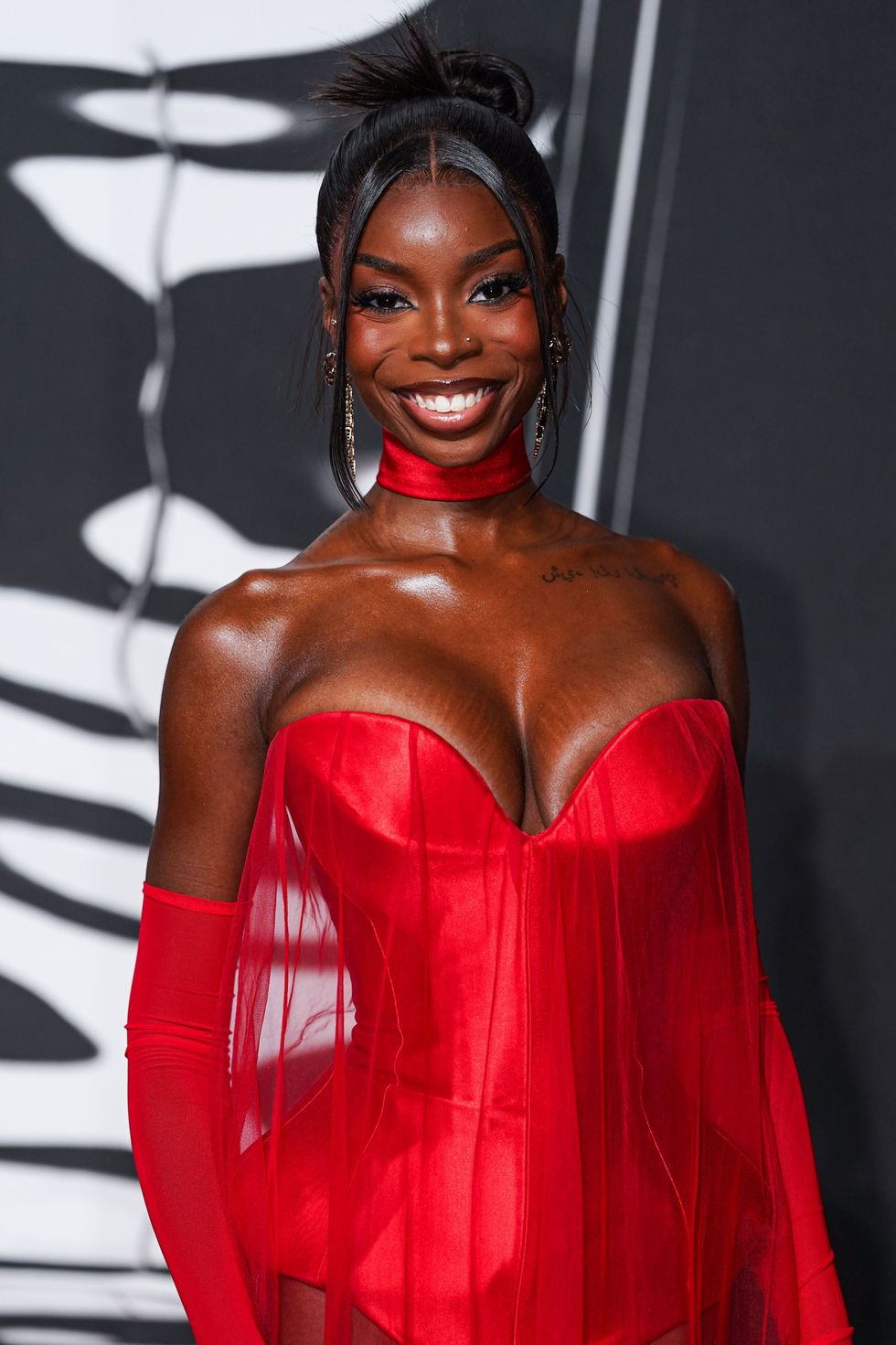
Model and Media Personality Olandria Carthen
Shutterstock
Olandria Carthen
Her Handle: @x_olandria
Her Title: Model and Media Personality
Who's That It Girl: Olandria Carthen is lighting up the entertainment space with creativity and confidence. We love her for carving out a name rooted in self-belief and for using her artistry to uplift and inspire.
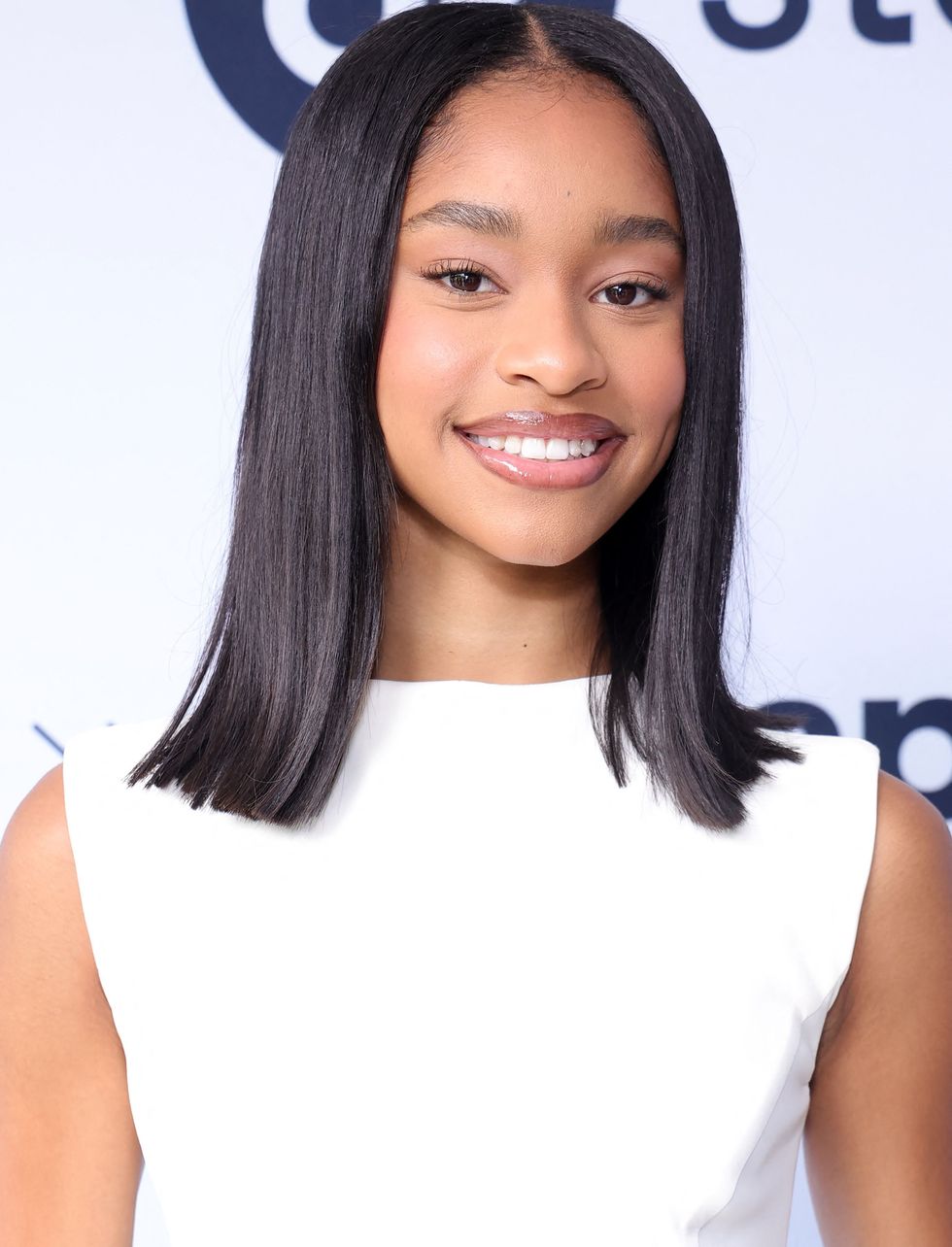
Actress Akira Akbar
Shutterstock
Akira Akbar
Her Handle: @akira_akbar
Her Title: Actress
Who's That It Girl: Bright, fearless, and full of heart, Akira Akbar is redefining what young Hollywood looks like. We honor her for bringing depth and authenticity to every role and for reminding the world that talent has no age limit.
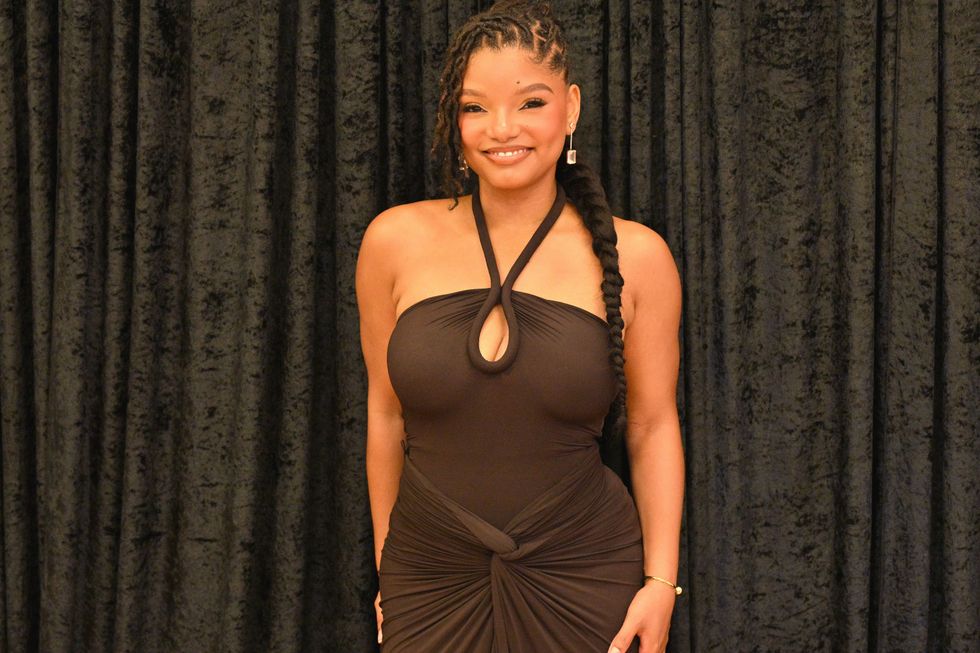
Singer, Songwriter and Actress Halle Bailey
Shutterstock
Halle Bailey
Her Handle: @hallebailey
Her Title: Singer, Songwriter and Actress
Who's That It Girl: Halle Bailey is ethereal strength in motion. We love her for redefining princesshood, representation, and the power of visibility, inspiring young dreamers to believe their voices belong on every stage.
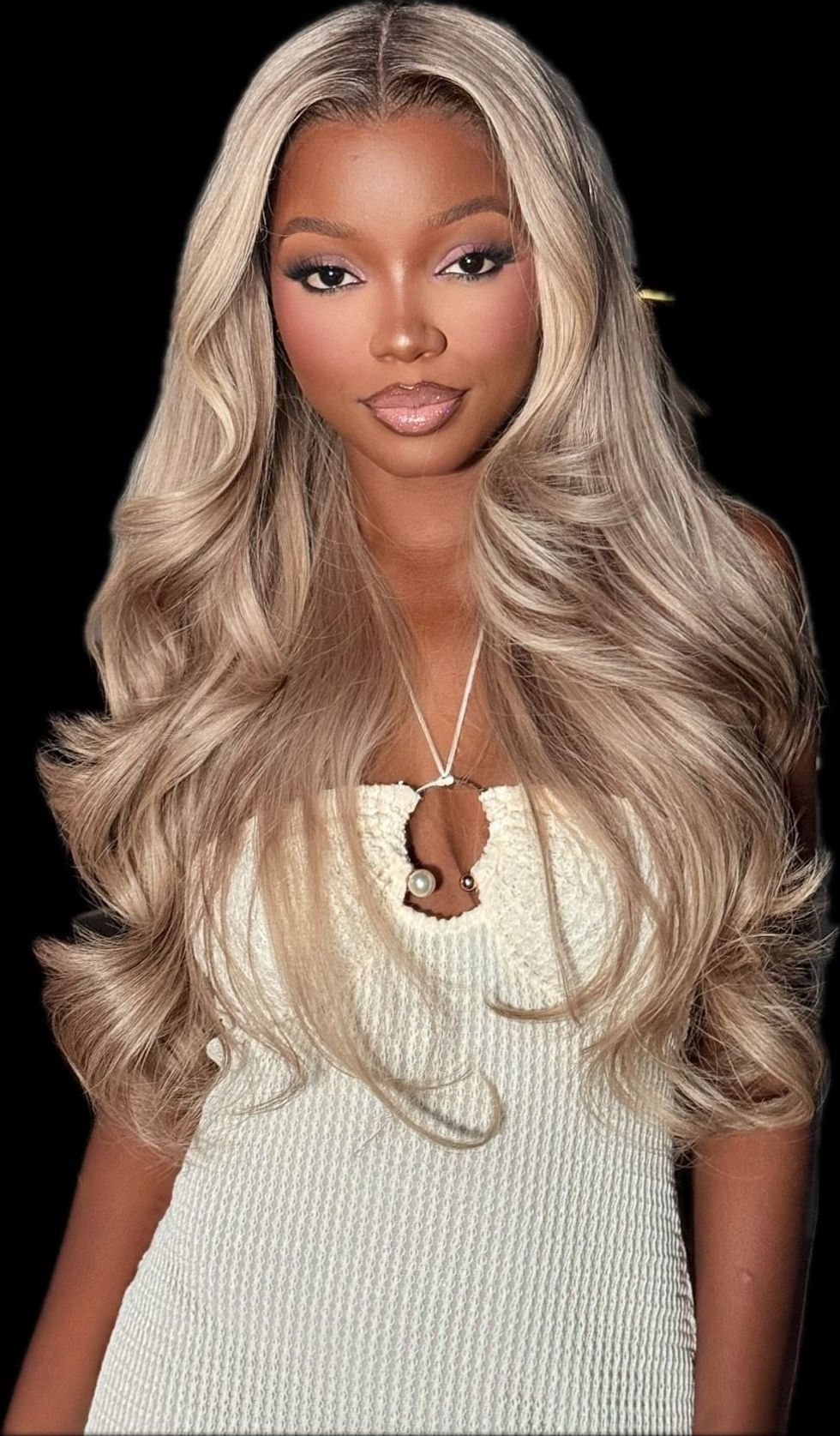
Entrepreneur, Model, Actress, and Cultural Voice Chelley Bissanthe
Courtesy
Chelley Bissanthe
Her Handle: @_slimthin
Her Title: Entrepreneur, Model, Actress, and Cultural Voice
Who's That It Girl: Chelley Bissainthe is a Haitian-American model, entrepreneur, and advocate. She uses her platform to uplift communities, honor her Caribbean heritage, and build pathways to ownership and legacy.
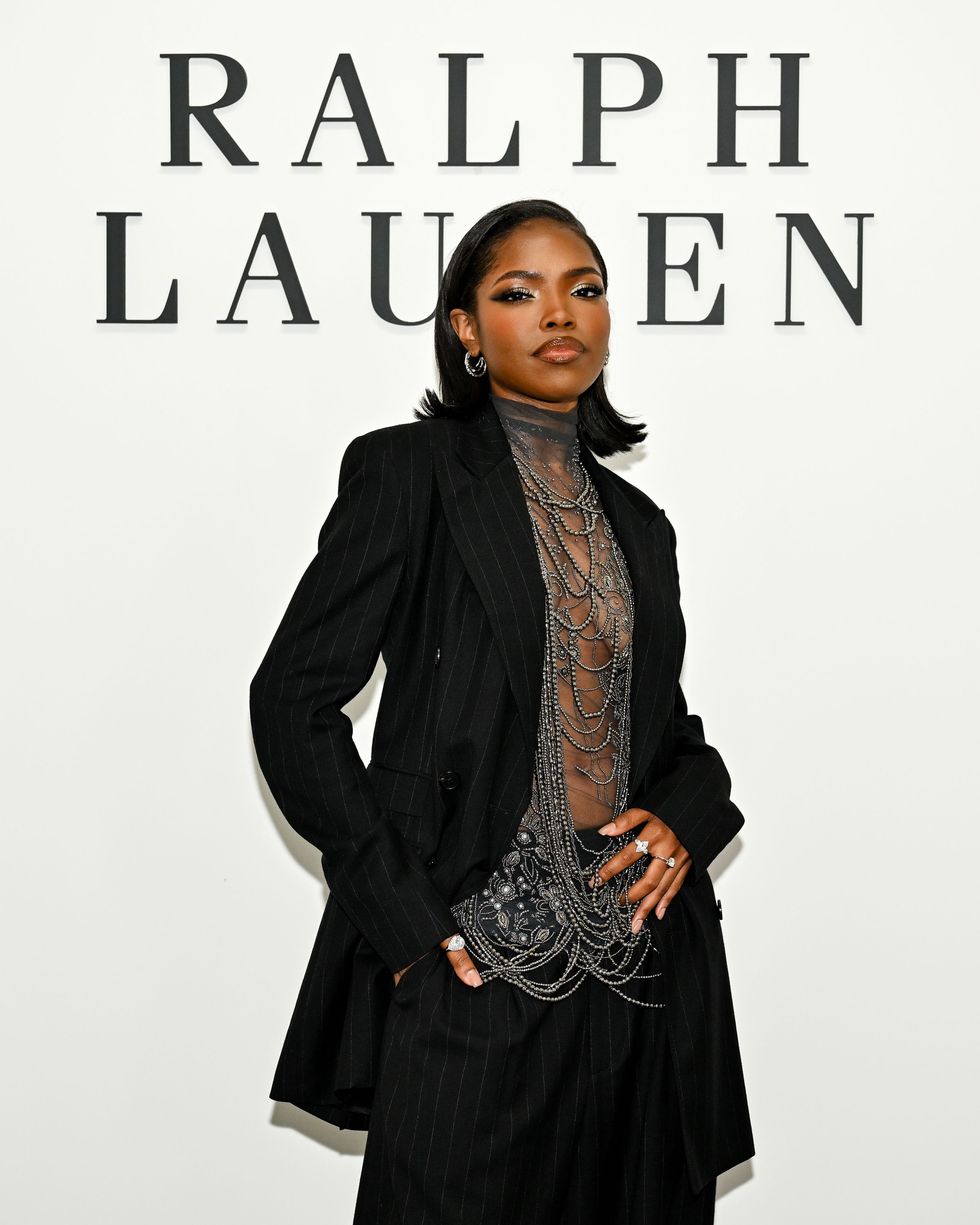
Actress and Singer Ryan Destiny
Shutterstock
Ryan Destiny
Her Handle: @ryandestiny
Her Title: Actress and Singer
Who's That It Girl: Ryan Destiny embodies star power and stillness in one. We celebrate her for her poise, range, and unshakable confidence, proof that quiet strength can shine just as bright as any spotlight.
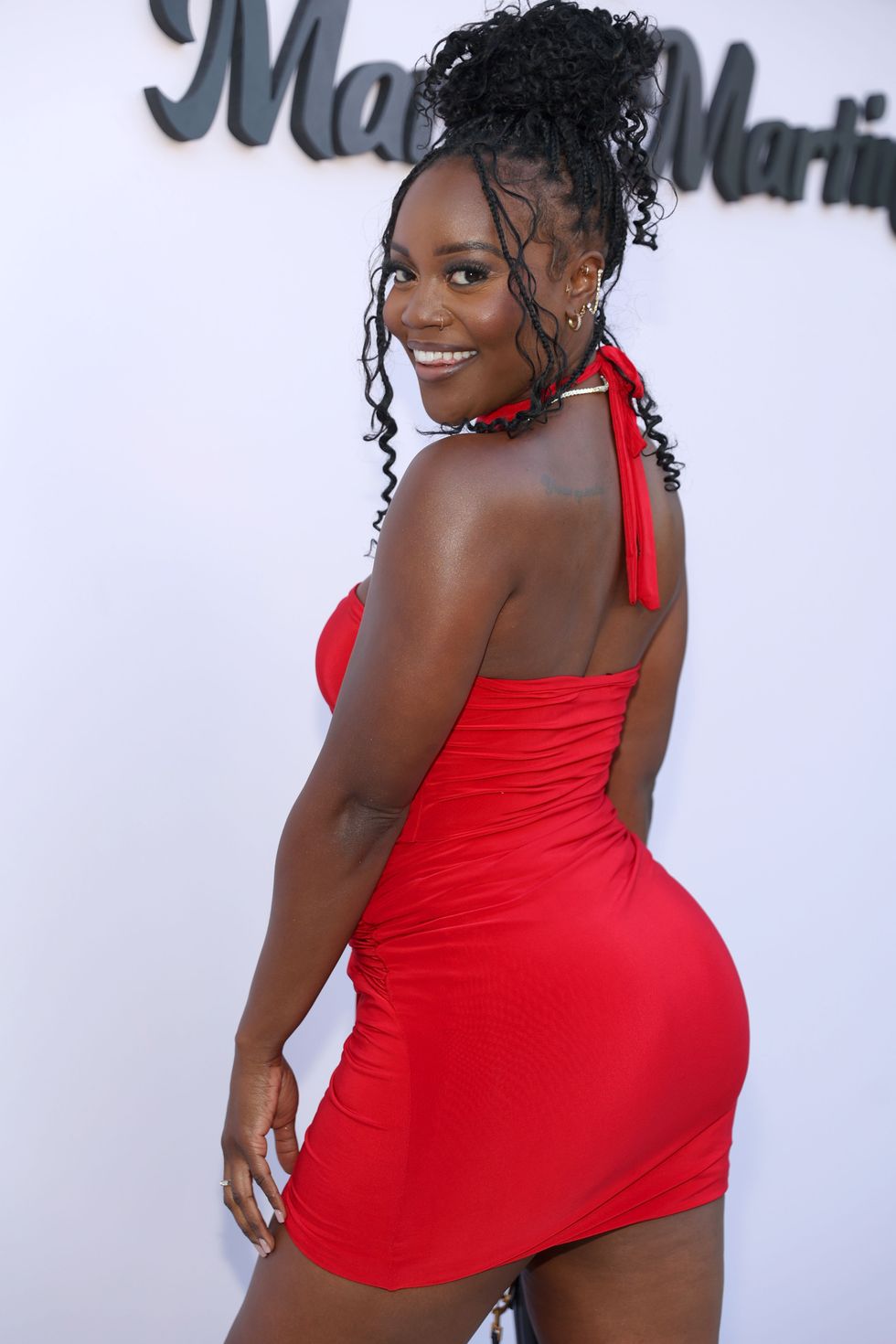
Reality TV Personality and Influencer Amber Desiree (AD)
Shutterstock
Amber Desiree (AD)
Her Handle: @amberdesiree
Her Title: Reality TV Personality and Influencer
Who's That It Girl: Charismatic and bold, Amber Desiree brings emotional depth and vibrant storytelling to every project she touches. We love her for representing multifaceted womanhood on screen and off, inspiring a generation of creatives to lead with authenticity.
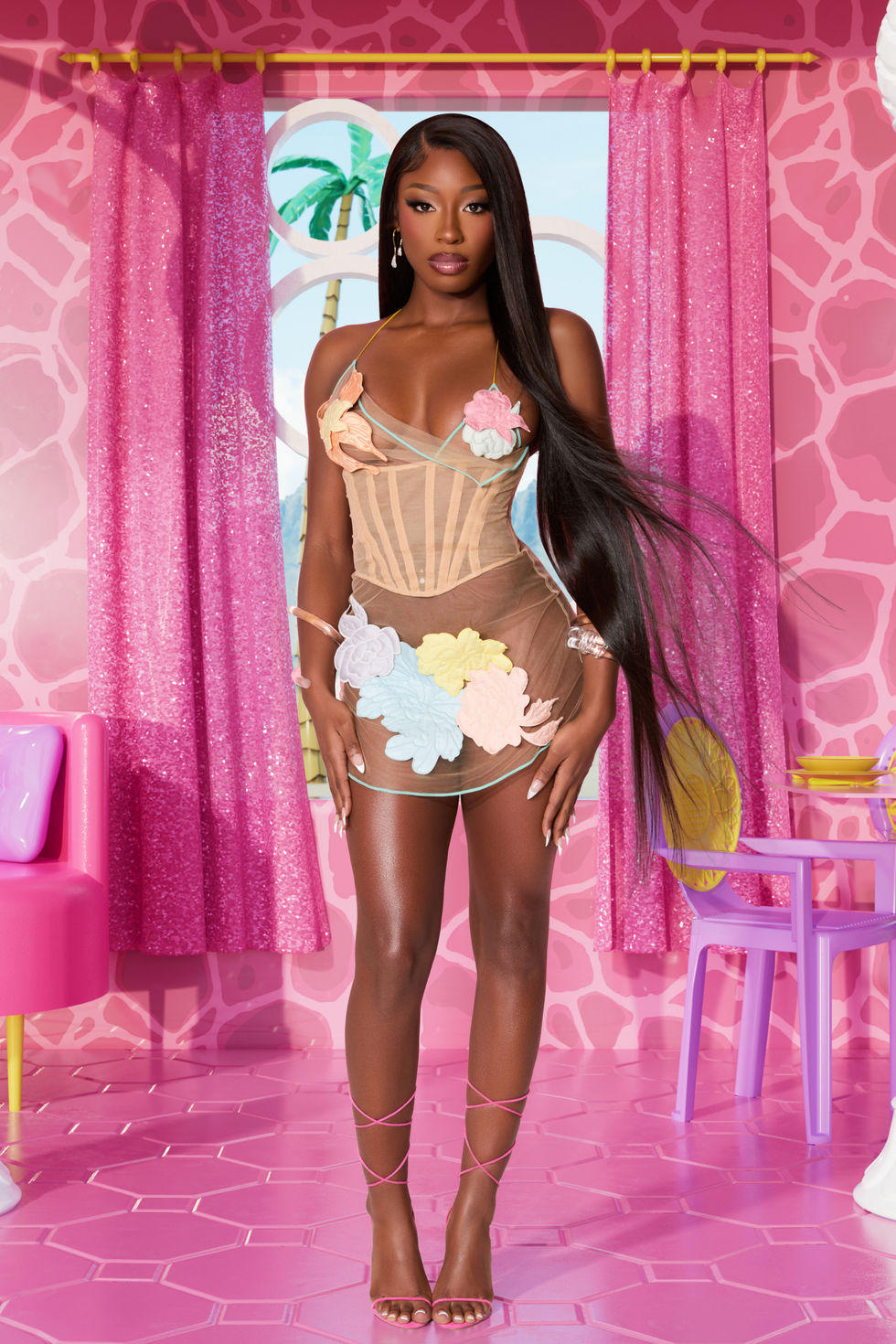
Top Creator, Model, Media Personality and Cultural Tastemaker Serena Page
Credit: Jacob Webster
Serena Page
Her Handle: @serenaapagee
Her Title: Top Creator, Model, Media Personality and Cultural Tastemaker
Who's That It Girl: Serena Page first captured hearts on Love Island USA Season 6 and has since become one of pop culture’s favorite “it girls.” Her confidence and authenticity have made her a go-to face for brands like SheaMoisture, Pepsi, and CeraVe.
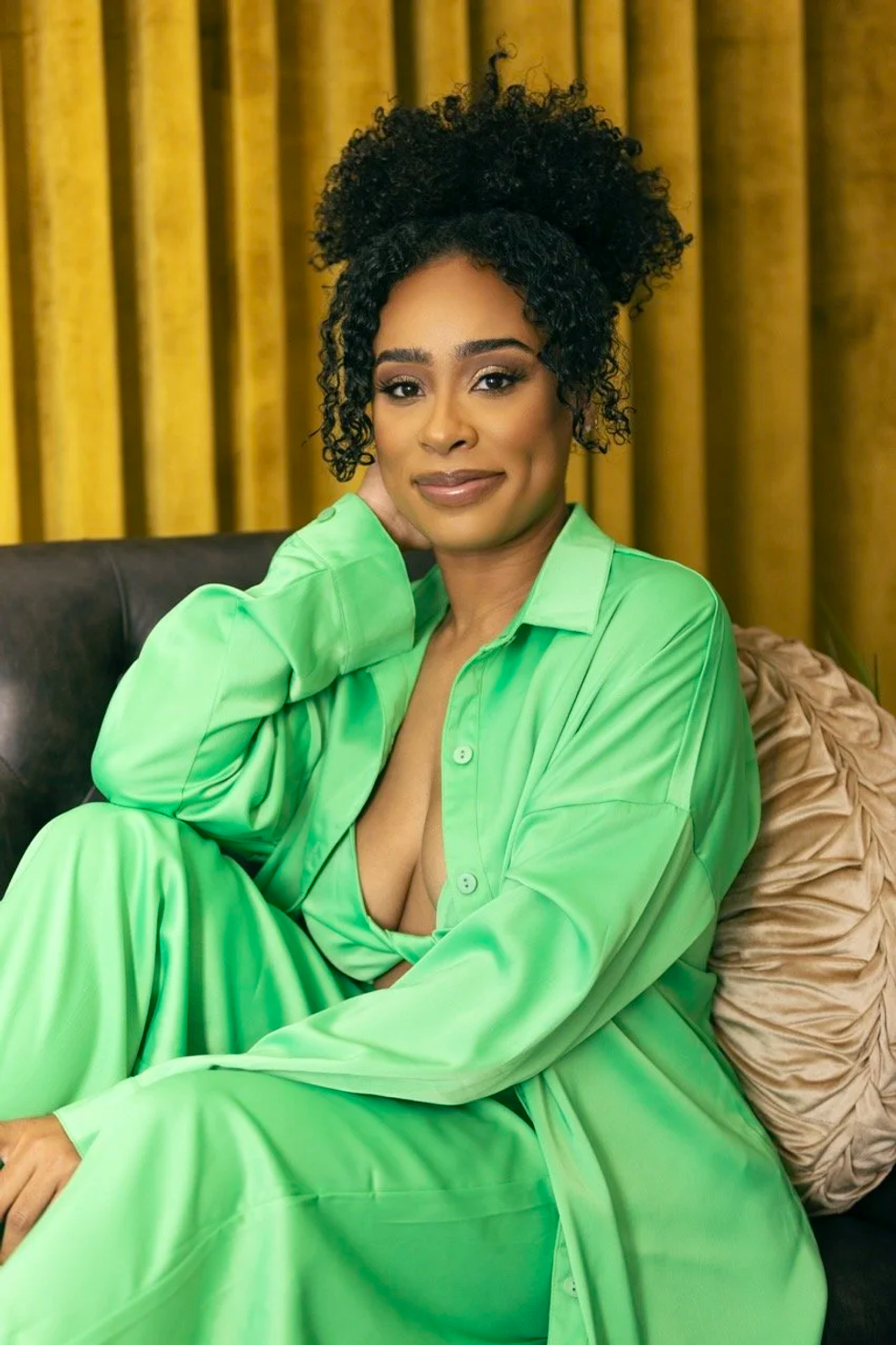
Director and Executive Producer Courtney Whitaker
Courtesy
Courtney Whitaker
Her Handle: @courtneyewhitaker
Her Title: Director and Executive Producer
Who's That It Girl: Courtney Whitaker is a two-time Emmy-winning producer and director specializing in TV, documentaries, and branded content. With over 20 projects completed, she's dedicated to amplifying underrepresented voices through impactful storytelling.
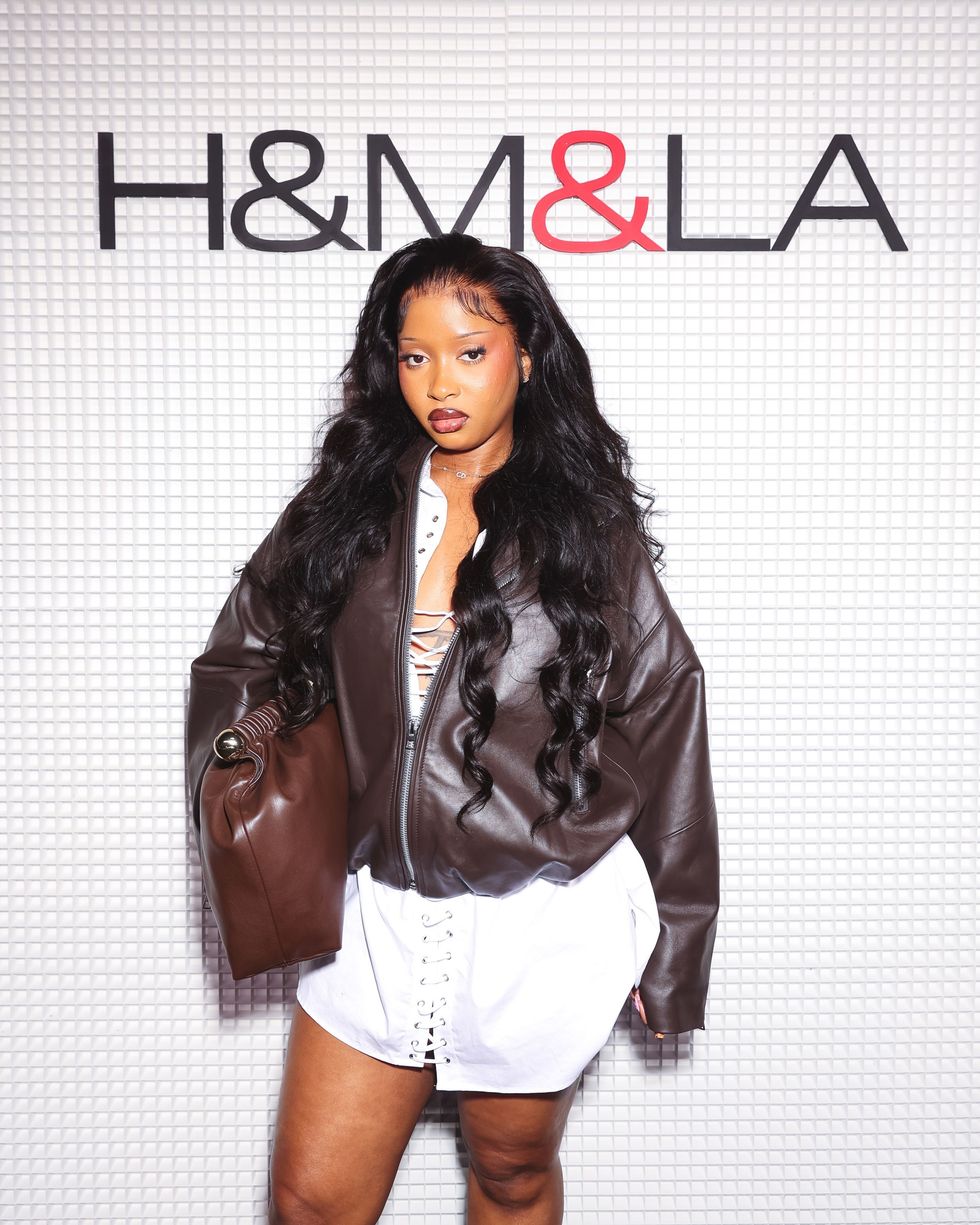
DJ Uncle Waffles
Shutterstock
Uncle Waffles
Her Handle: @unclewaffles_
Her Who's That It Girl: The DJ queen of the global stage, Uncle Waffles turns sound into celebration. We love her for electrifying dance floors and championing African creativity with confidence, rhythm, and undeniable joy.
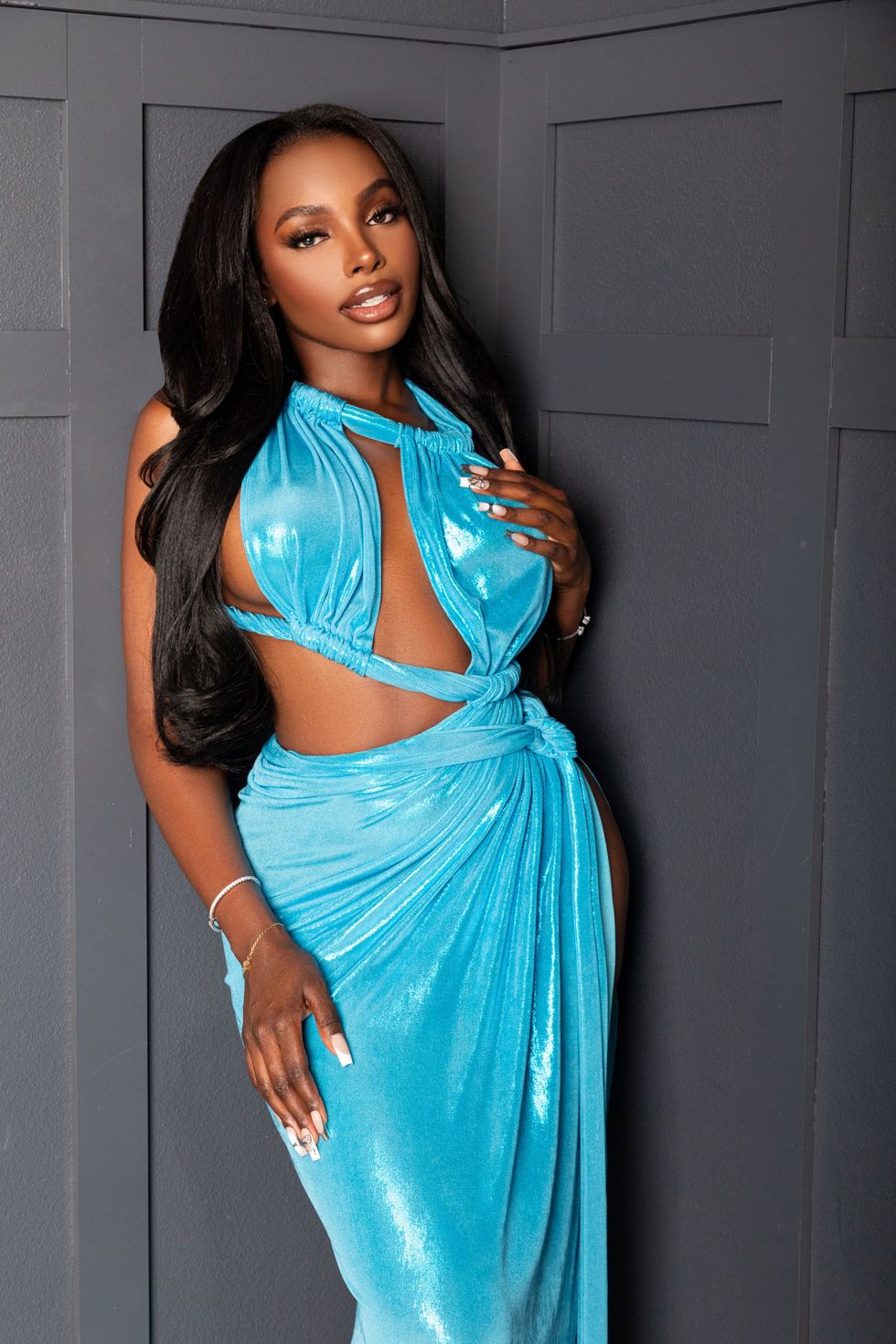
Entrepreneur and Television Personality JaNa Craig
Credit: Susan Madore
JaNa Craig
Her Handle: @janacraig_
Her Title: Creator, Entrepreneur and Television Personality
Who's That It Girl: With creativity that defies convention, JaNa Craig is building a lane all her own in music and production. We celebrate her for reminding women that reinvention is power and authenticity is art.
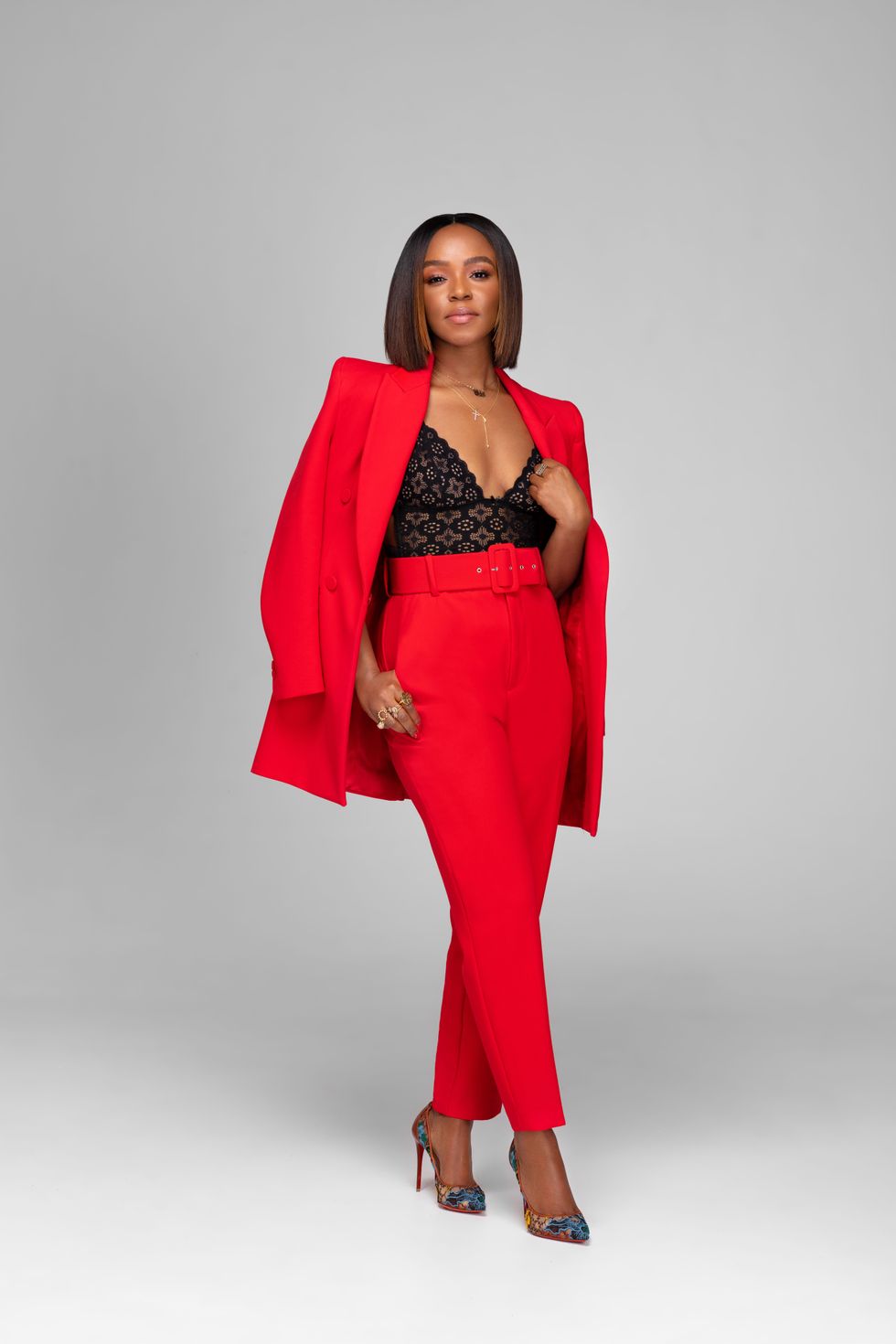
Award-Winning Journalist, Host and Creator Gia Peppers
Credit: Jonavennci Divad - Ravenn Burs
Gia Peppers
Her Handle: @giapeppers
Her Title: Award-Winning Journalist, Host and Creator of Healed Girl Era Podcast
Who's That It Girl: Gia Peppers is an award-winning journalist, host, and podcaster who uses her platforms to tell powerful stories. Through More Than That and Healed Girl Era, she reminds audiences to embrace their voice and value.
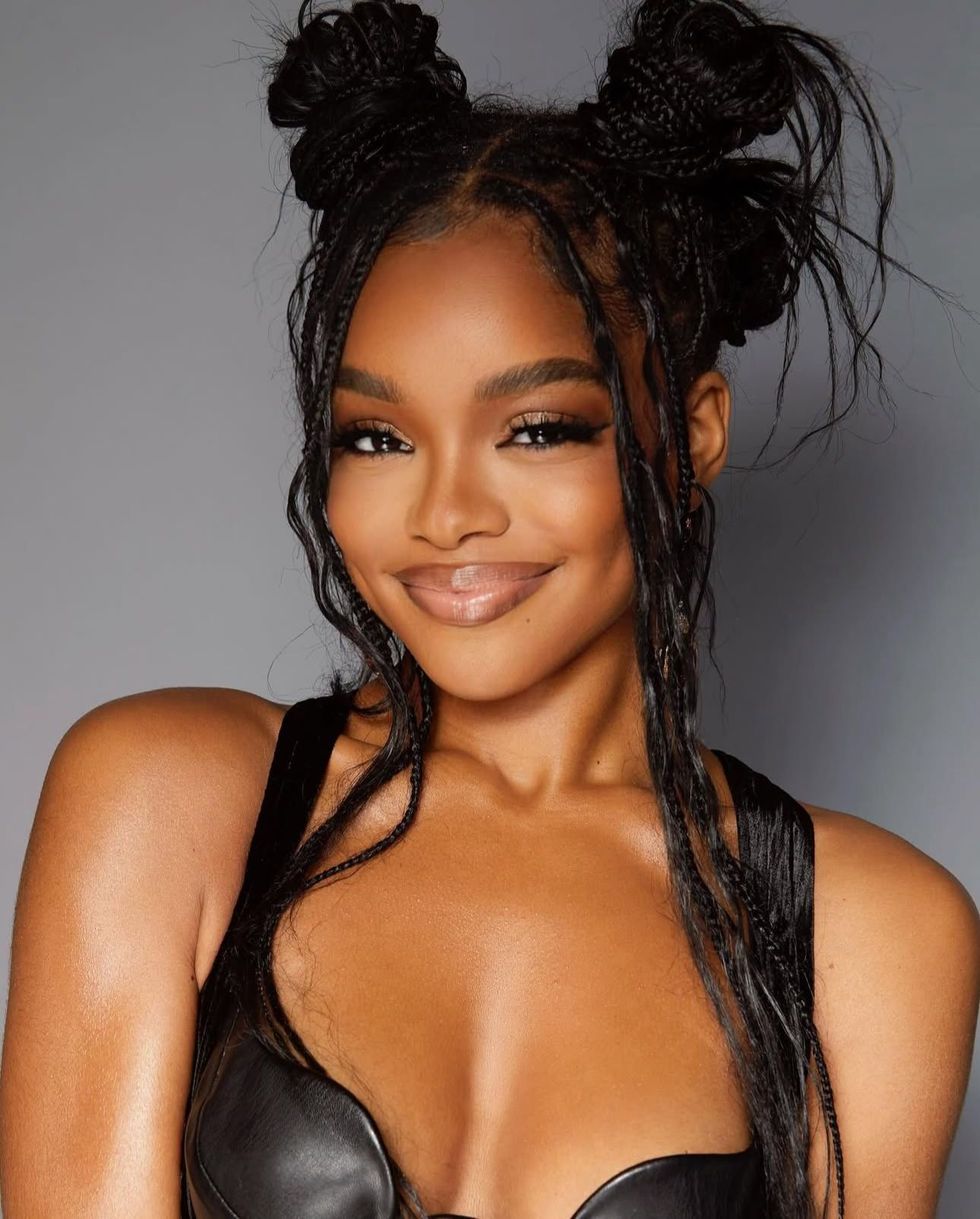
Actress, Executive Producer, and Founder Marsai Martin
Credit: Maya McHenry
Marsai Martin
Her Handle: @marsaimartin
Her Title: Actress, Executive Producer, and Founder of Genius Entertainment and Sai Summer Cookout
Who's That It Girl: Marsai Martin is a creative prodigy with executive energy. We’re inspired by her for producing, directing, and acting with intention, showing young Black girls that leadership starts wherever you decide it does.
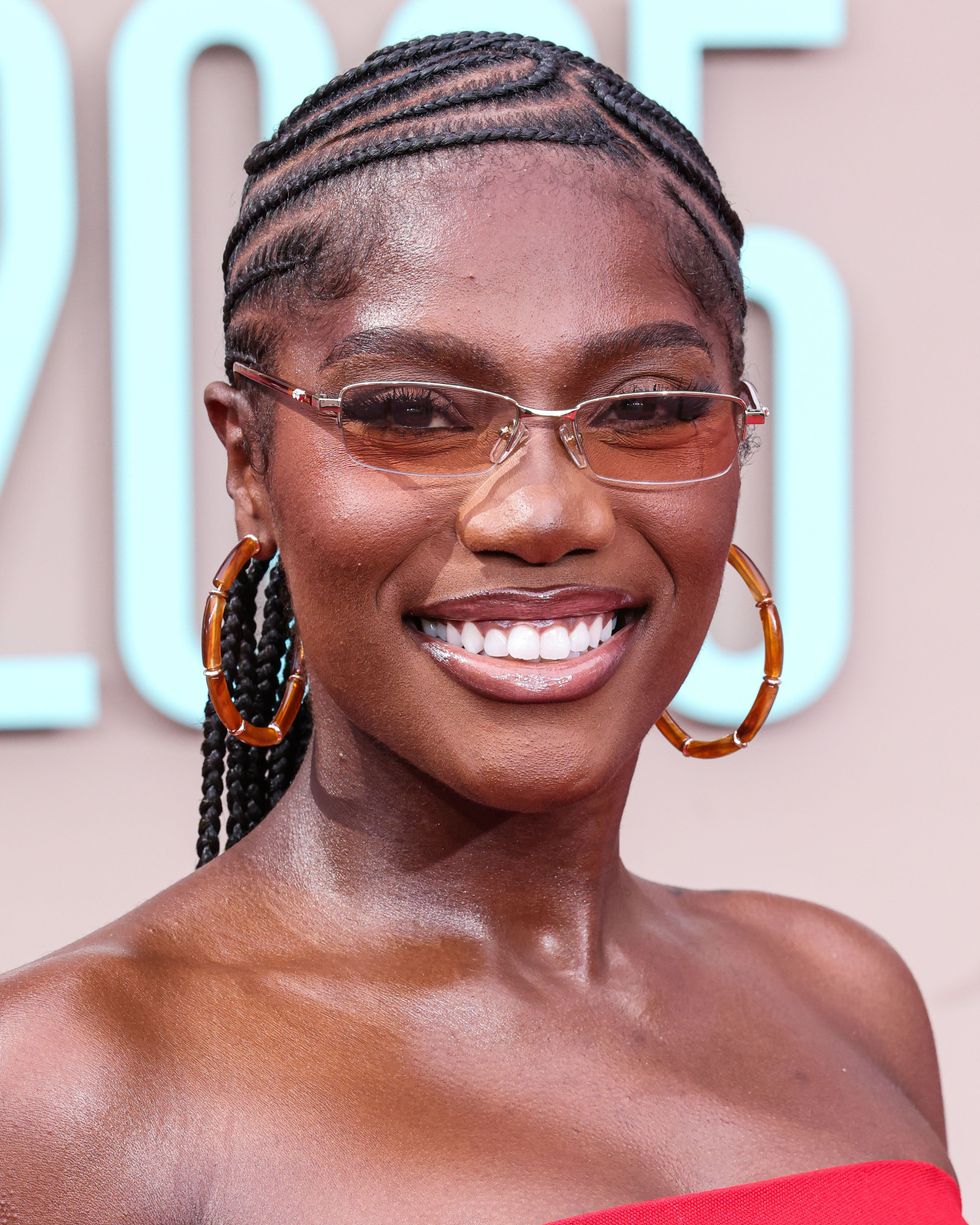
Rapper and Singer Doechii
Shutterstock
Doechii
Her Handle: @doechii
Her Title: Rapper and Singer
Who's That It Girl: A lyrical firestorm and unapologetic visionary, Doechii is shaping the sound of this generation. We honor her for pushing the boundaries of genre, performance, and self-expression with fearless creativity.
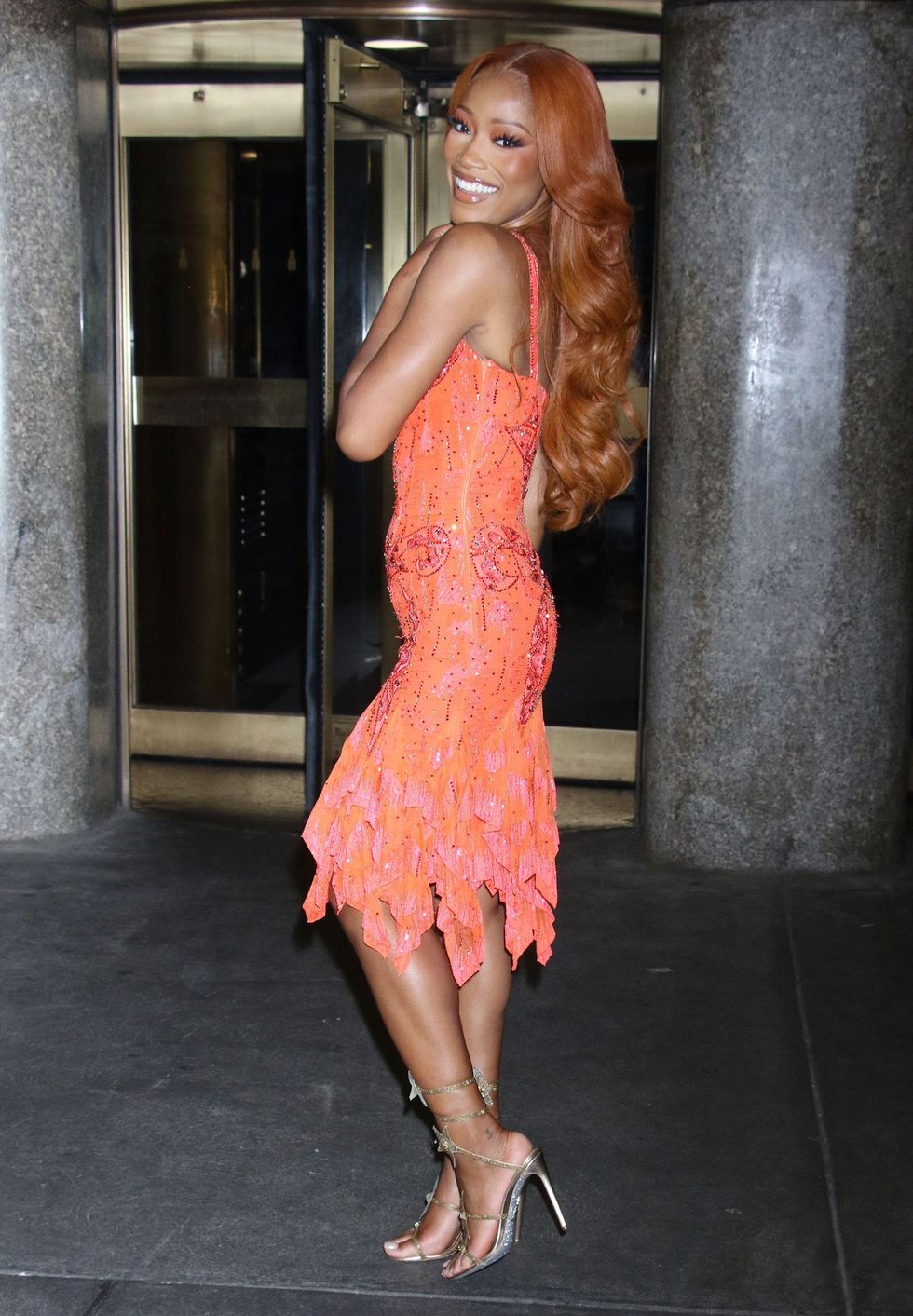
Actress, Singer, Producer and TV Host Keke Palmer
Shutterstock
Keke Palmer
Her Handle: @keke
Her Title: Actress, Singer, Producer and TV Host
Who's That It Girl: An icon of charisma and confidence, Keke Palmer is entertainment royalty. We celebrate her for leading with humor, honesty, and hustle, showing that versatility is her superpower and evolution her legacy.
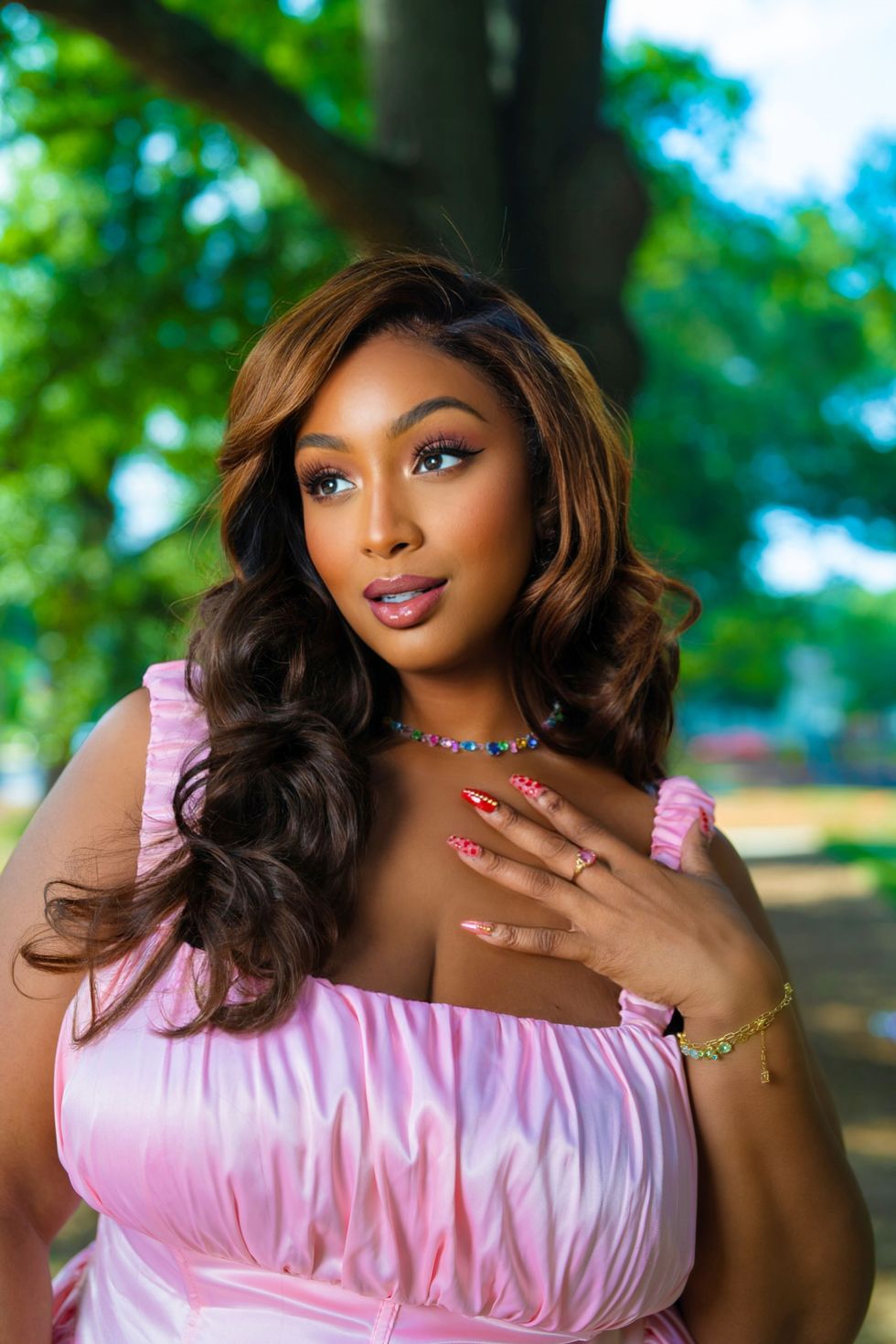
Actress, Model, Singer, Designer, Content Creator and Entrepreneur Nzinga Imani
Credit: Shae DeWaal
Nzinga Imani
Her Handle: @nzingaimani
Her Title: Actress, Model, Singer, Designer, Content Creator and Entrepreneur
Who's That It Girl: We love Nzinga Imani for her bold authenticity and on-screen presence. As an actress, model, and entrepreneur, she’s redefining beauty and representation in entertainment.
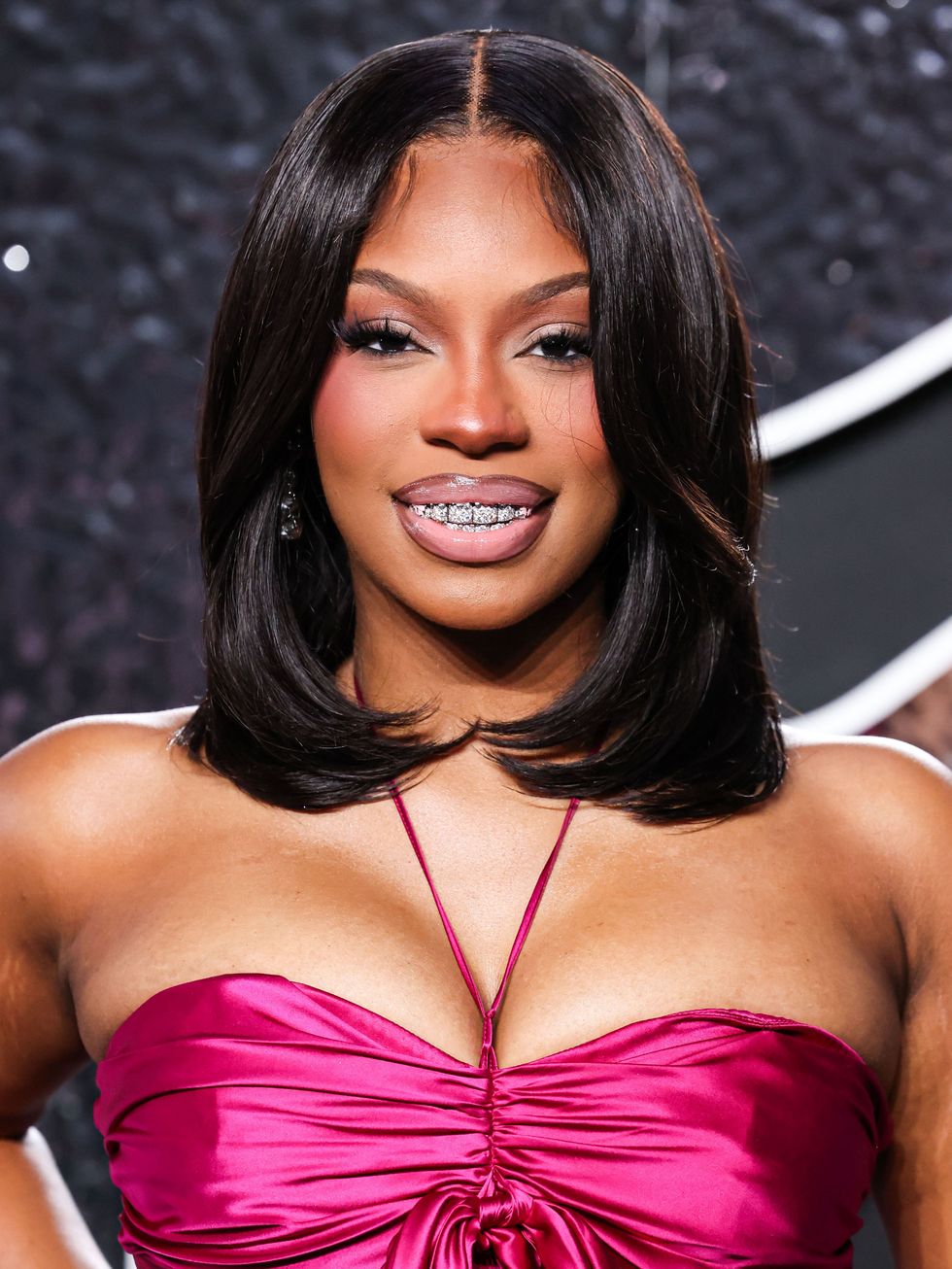
Rapper and Singer Monaleo
Shutterstock
Monaleo
Her Handle: @themonaleo
Her Title: Rapper and Singer
Who's That It Girl: Monaleo’s voice hits with power and purpose. We honor her for pairing confidence with vulnerability, turning her truth into anthems that inspire women to heal loudly and live boldly.
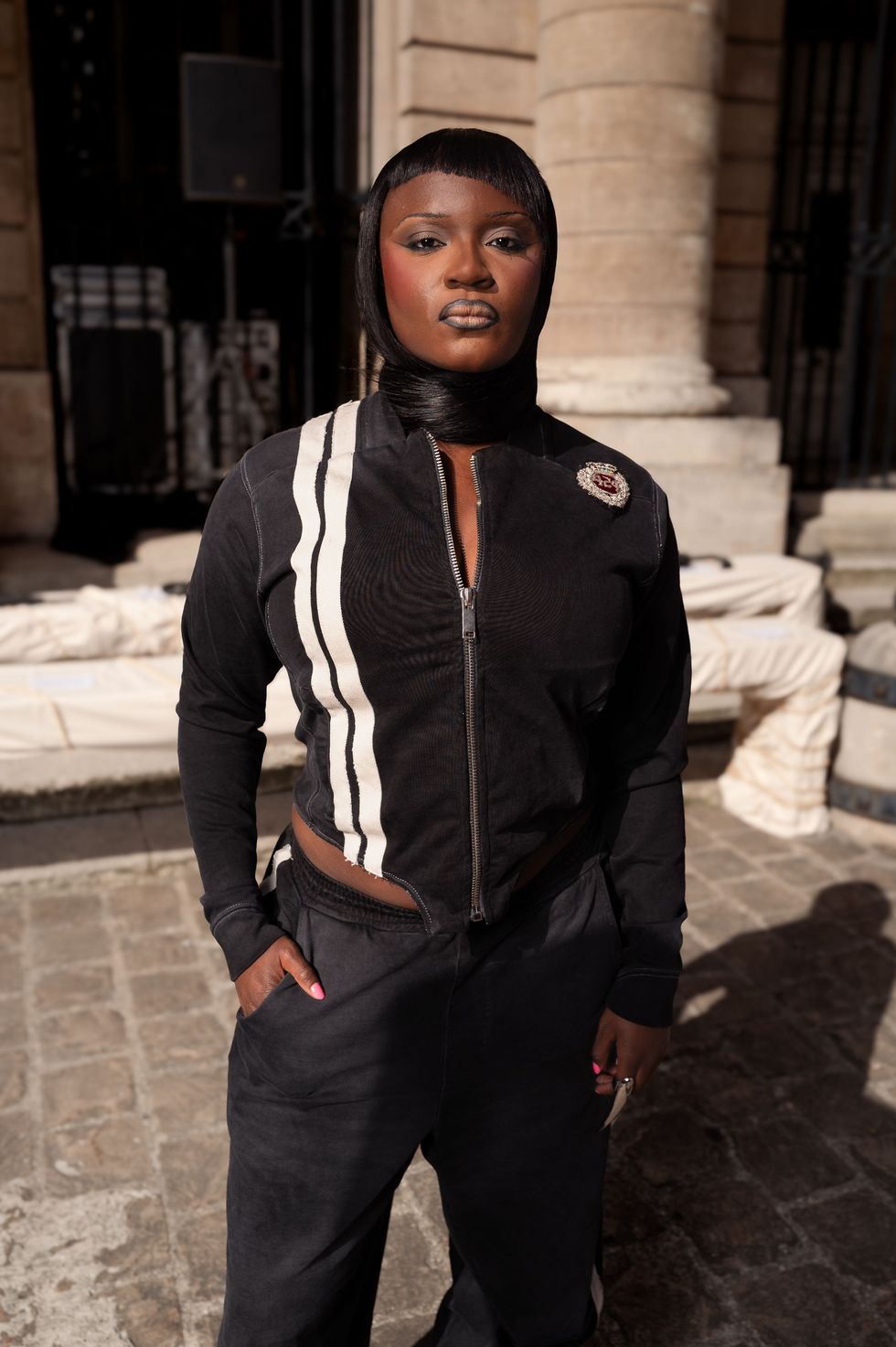
Singer and Songwriter Amaarae
Shutterstock
Amaarae
Her Handle: @amaarae
Her Title: Singer and Songwriter
Who's That It Girl: With a sound that bends genres and a style that breaks rules, Amaarae is one of music’s most daring voices. We celebrate her for pushing boundaries, owning her individuality, and amplifying the power of Afro-fusion on a global stage.

Singer, KATSEYE Monan Bannerman
Shutterstock
Monan Bannerman
Her Handle: @meretmanon
Her Title: Singer, KATSEYE
Who's That It Girl: As a member of KATSEYE, Monan merges style, grace, and global influence. We celebrate her for bringing cultural depth and individuality to the next generation of pop icons.
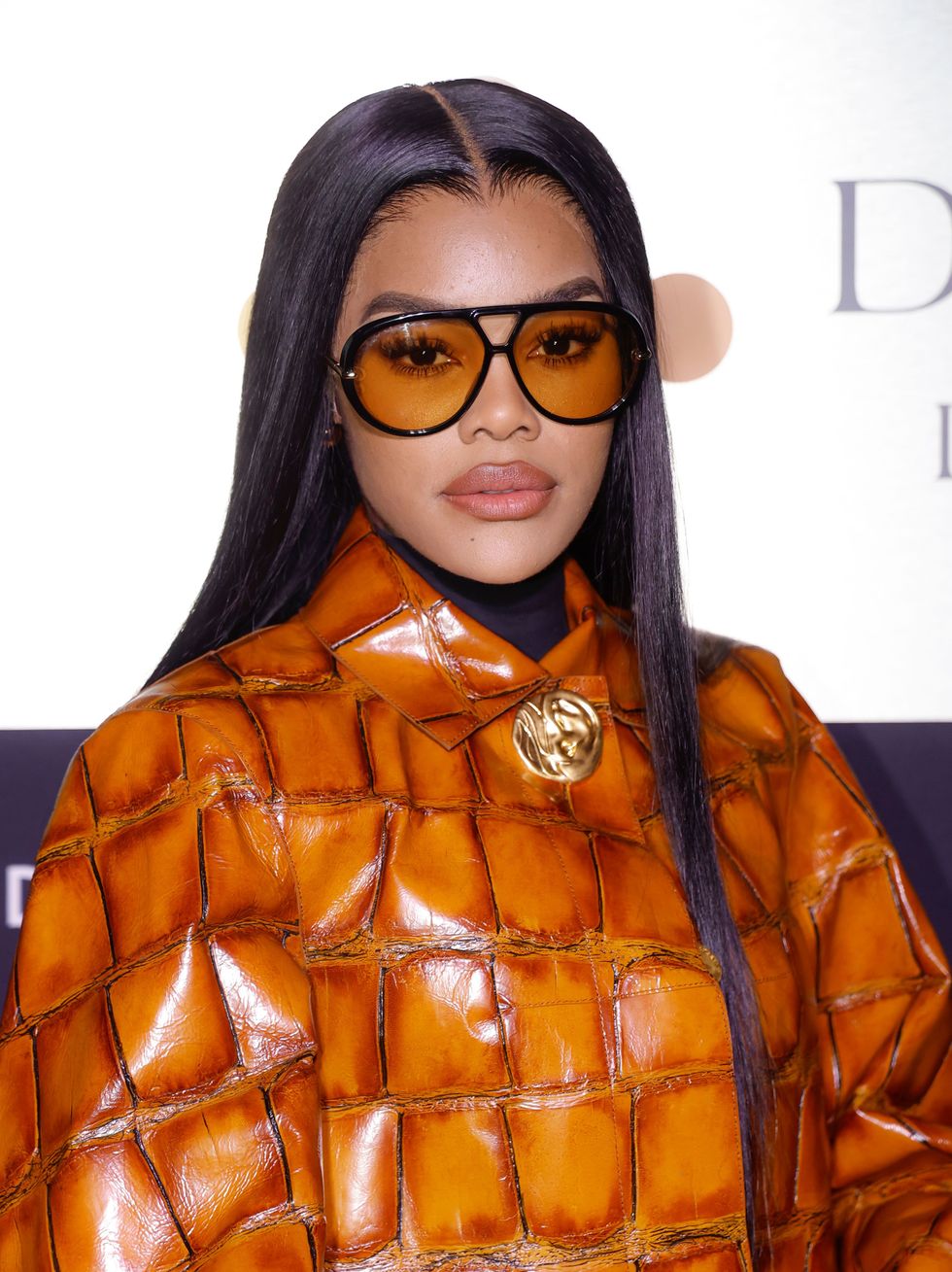
Singer, Actress, Creative Director, and Choreographer Teyana Taylor
Shutterstock
Teyana Taylor
Her Handle: @teyanataylor
Her Title: Singer, Actress, Creative Director, and Choreographer
Who's That It Girl: Teyana Taylor is the embodiment of artistry, singer, choreographer, director, designer. We honor her for transforming every creative avenue she touches into a masterpiece of movement, emotion, and empowerment.

Singer, Songwriter and Producer Laila!
Courtesy
Laila!
Her Handle: @prodlaila
Her Title: Singer, Songwriter, and Producer
Who's That It Girl: Laila is the creative force whose sound pulses with honesty and energy. We honor her for capturing emotion through production and storytelling, inspiring a new era of music that feels intimate yet universal.
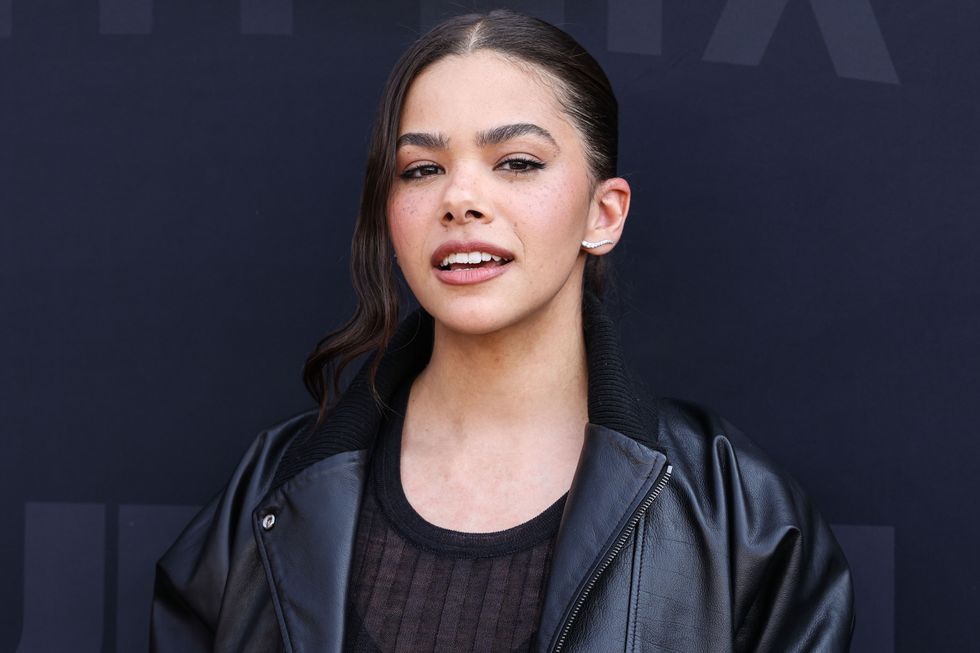
Actress Antonia Gentry
Shutterstock
Antonia Gentry
Her Handle: @_antoniagentry_
Her Title: Actress
Who's That It Girl: With talent that transcends screens, Antonia Gentry brings raw emotion and grace to every performance. We honor her for reminding us that vulnerability is strength and that storytelling can be both healing and revolutionary.
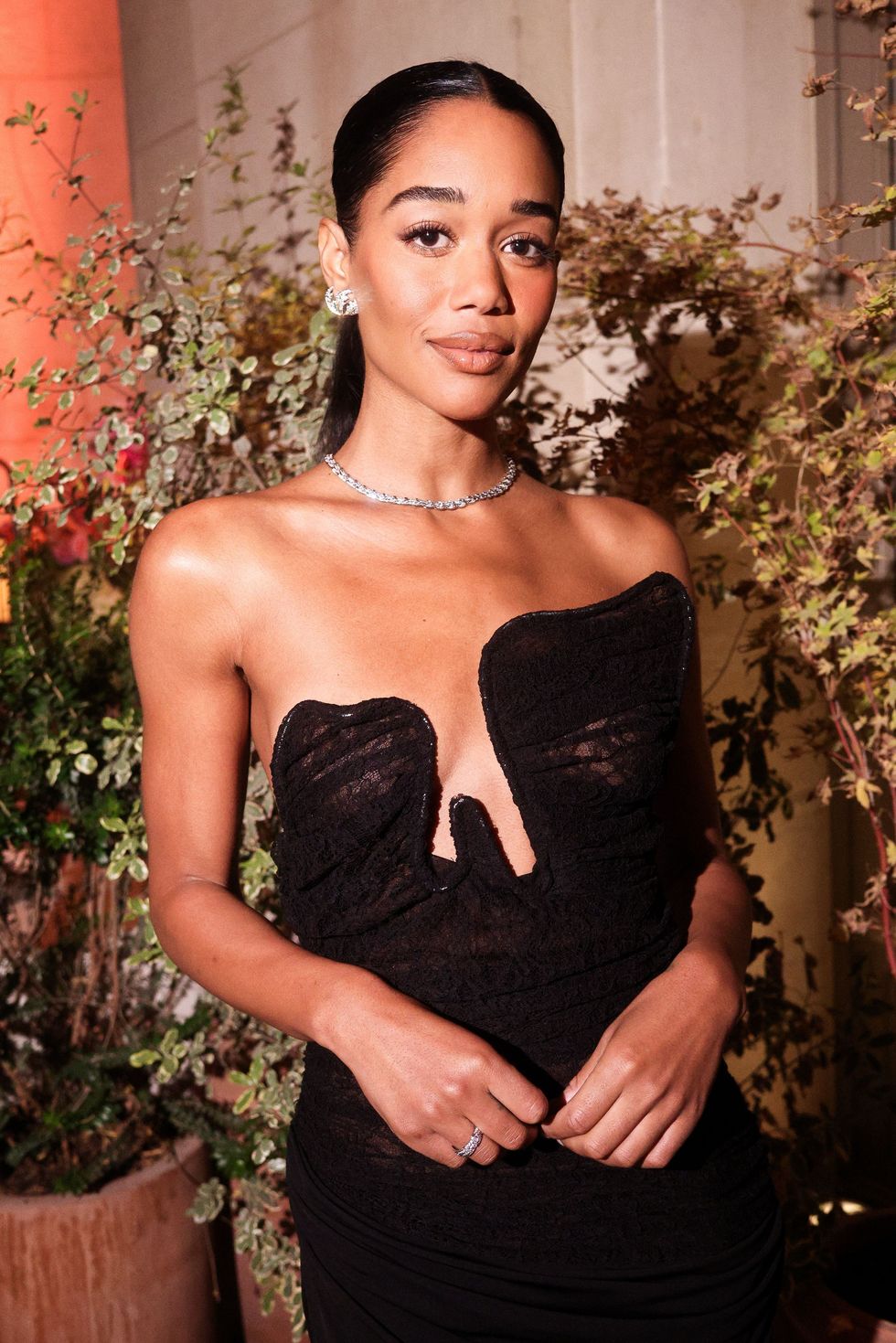
Actress and Model Laura Harrier
Shutterstock
Laura Harrier
Her Handle: @lauraharrier
Her Title: Actress and Model
Who's That It Girl: Effortlessly chic and profoundly grounded, Laura Harrier is redefining Hollywood grace. We celebrate her for using her platform to champion representation and for proving that elegance and activism can coexist beautifully.
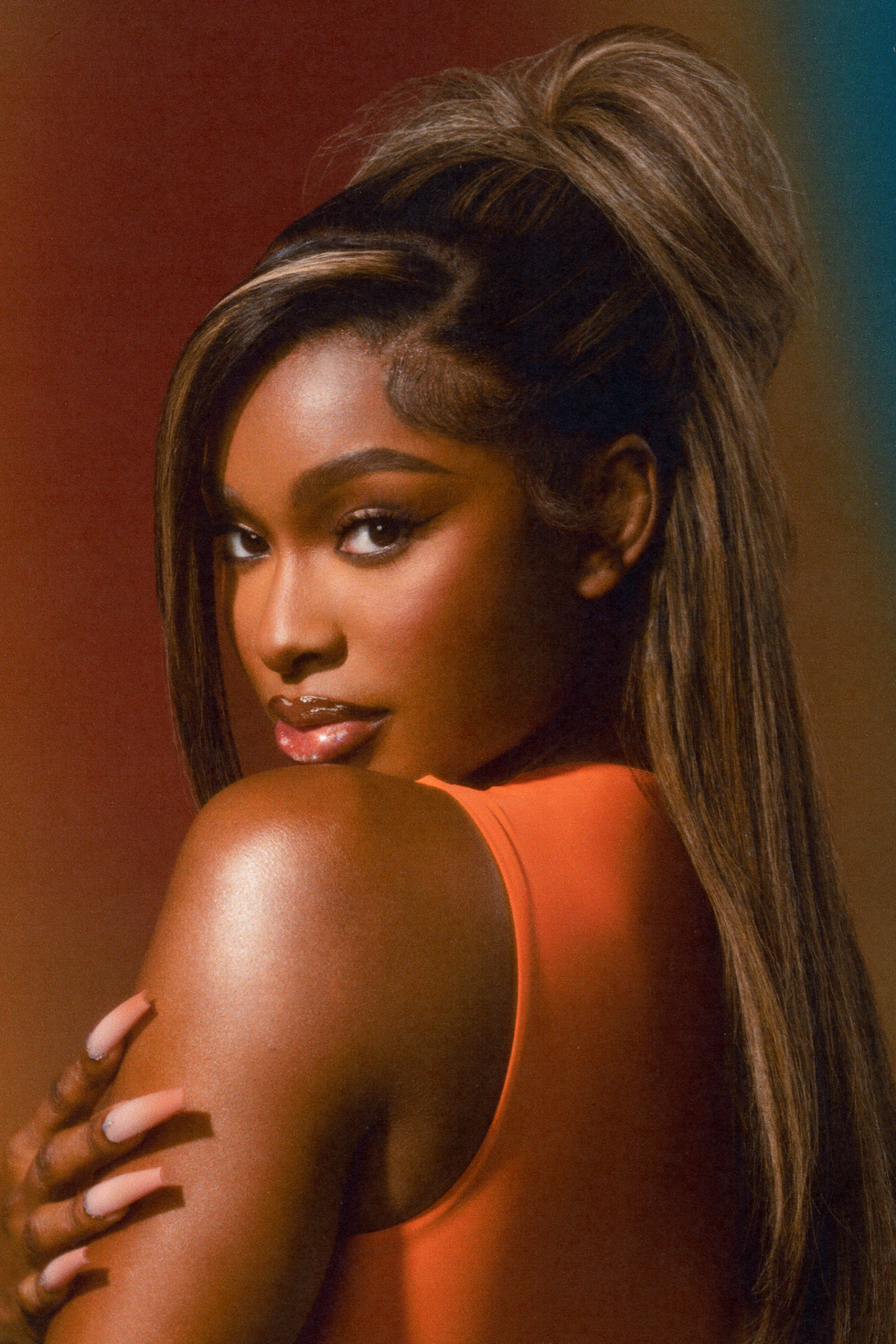
R&B Singer/Songwriter, Actress Coco Jones
Courtesy
Coco Jones
Her Handle: @cocojones
Her Title: R&B Singer/Songwriter, Actress
Who's That It Girl: Coco Jones is a Grammy-winning R&B breakout who captivates with her timeless artistry and soulful voice. She also stars as Hilary Banks in the Bel-Air reboot and recently wrapped an upcoming romantic comedy That’s Her.
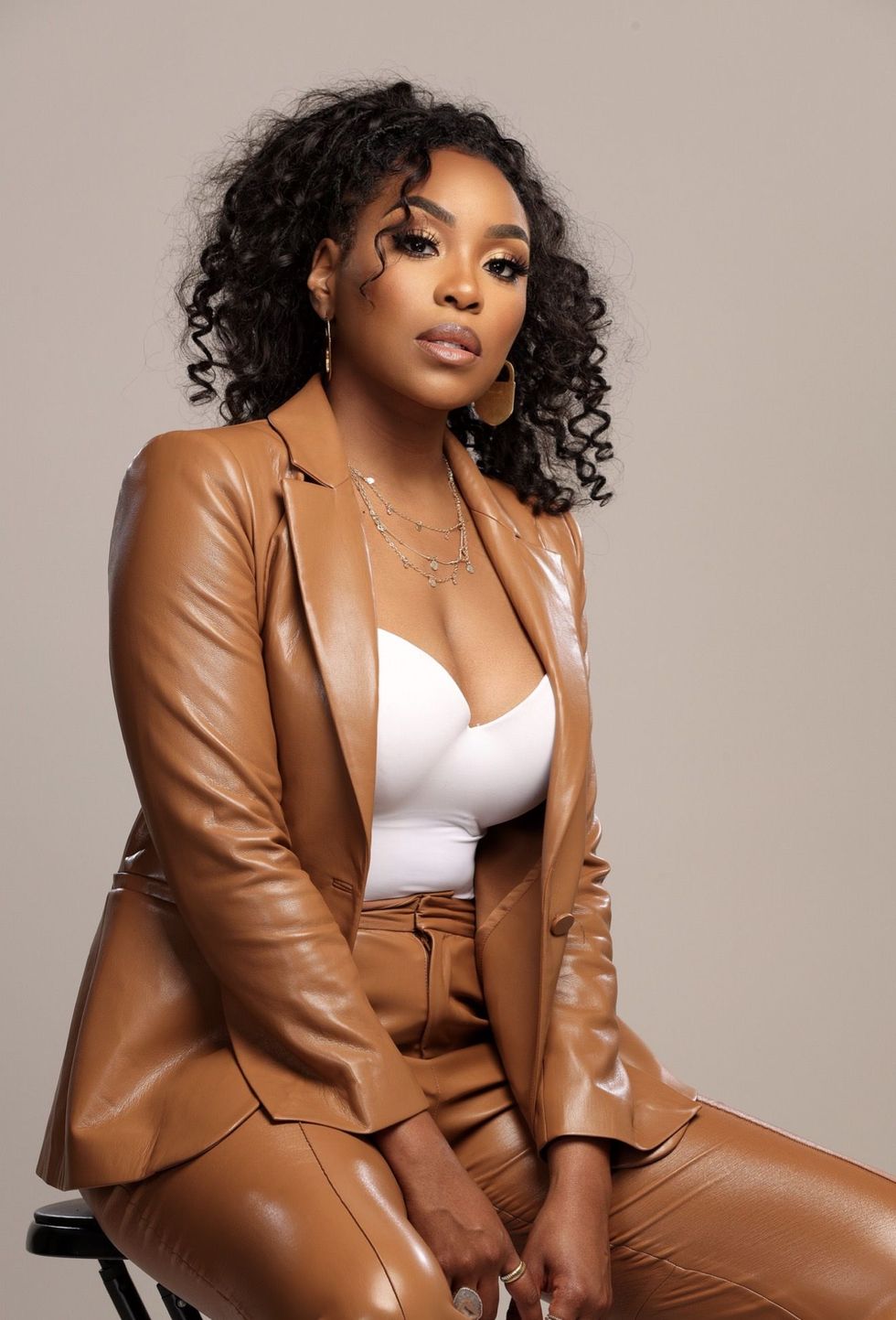
Entrepreneur, Media Personality and Philanthropist Lauren Speed-Hamilton
Courtesy
Lauren Speed-Hamilton
Her Handle: @need4lspeed
Her Title: Entrepreneur, Media Personality and Philanthropist
Who's That It Girl: Lauren Speed-Hamilton turned her Love Is Blind journey into a masterclass in purpose-driven storytelling. We love her for inspiring authenticity in love, media, and entrepreneurship, building connection where vulnerability meets vision.
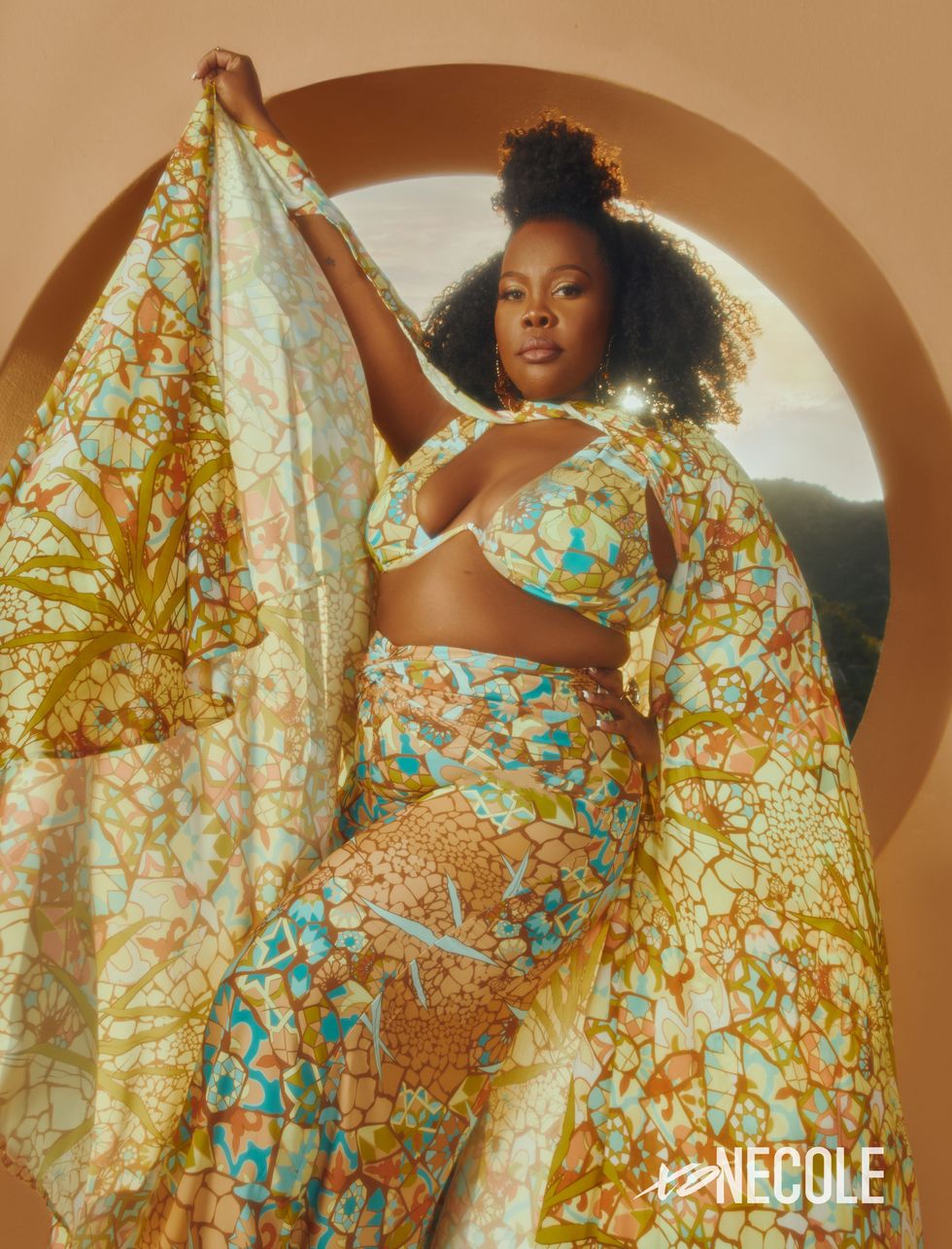
Actress and Singer Amber Riley
Credit: xoNecole
Amber Riley
Her Handle: @msamberpriley
Her Title: Actress and Singer
Who's That It Girl: Amber Riley’s voice is pure power, soulful, spiritual, and unforgettable. We celebrate her for using her artistry to uplift others, redefining what resilience and radiance look like in entertainment.
Joy Woods
Her Handle: @joynwoods
Her Title: Actress
Who's That It Girl: Joy Woods’ name says it all, joy radiates through every note she sings. We’re inspired by her Broadway brilliance and her commitment to showing that Black women’s voices are boundless and breathtaking.
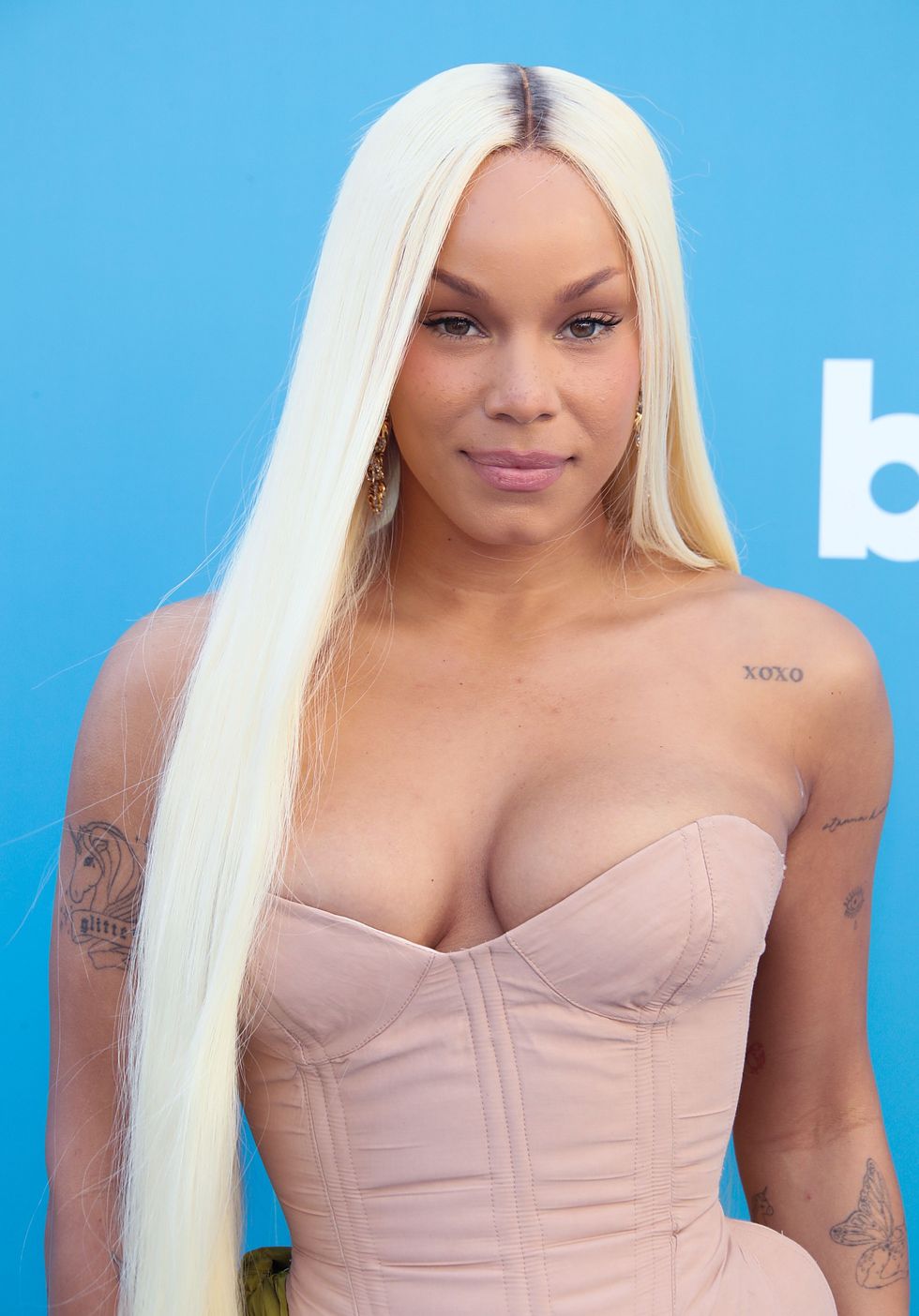
Country Singer, Songwriter Tanner Adell
Shutterstock
Tanner Adell
Her Handle: @tanneradell
Her Title: Country Singer, Songwriter
Who's That It Girl: With a voice as bold as her vision, Tanner Adell is redefining country music with style and soul. We celebrate her for breaking barriers, blending cultures, and creating a sound that’s unapologetically her own.
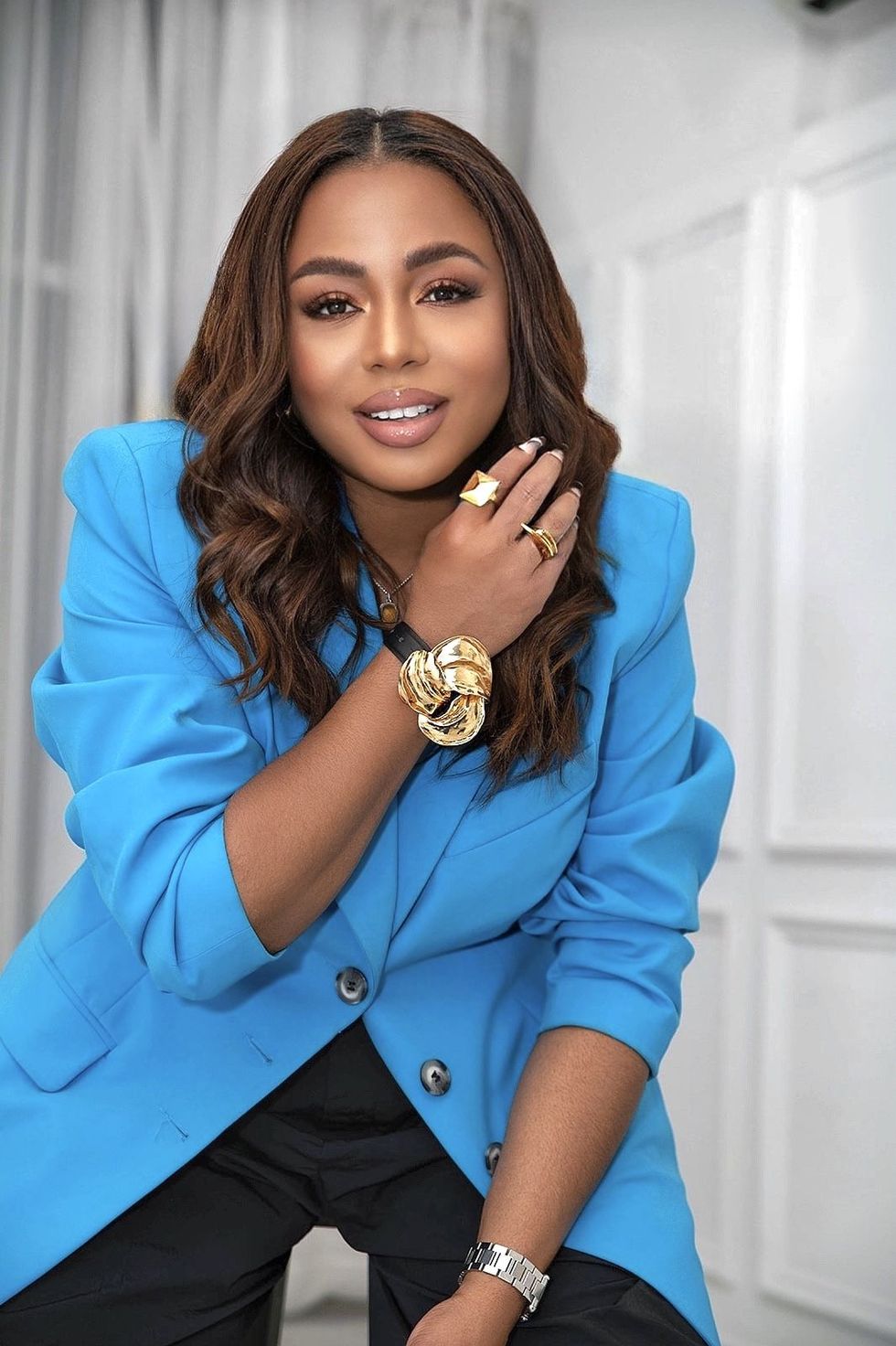
Producer, Host and Media Maven Kéla Walker
Courtesy
Kéla Walker
Her Handle: @KelaWalker
Her Title: Producer, Host and Media Maven
Who's That It Girl: Kéla Walker is a 7x Emmy-nominated producer, host, and digital tastemaker, a modern-day media maven merging television storytelling with contemporary influence. As the founder of Walker Media Group, she curates aspirational lifestyle content anchored in style, culture, and substance. From red carpets to real life, Kéla brings a distinct point of view that bridges legacy media and the digital landscape.
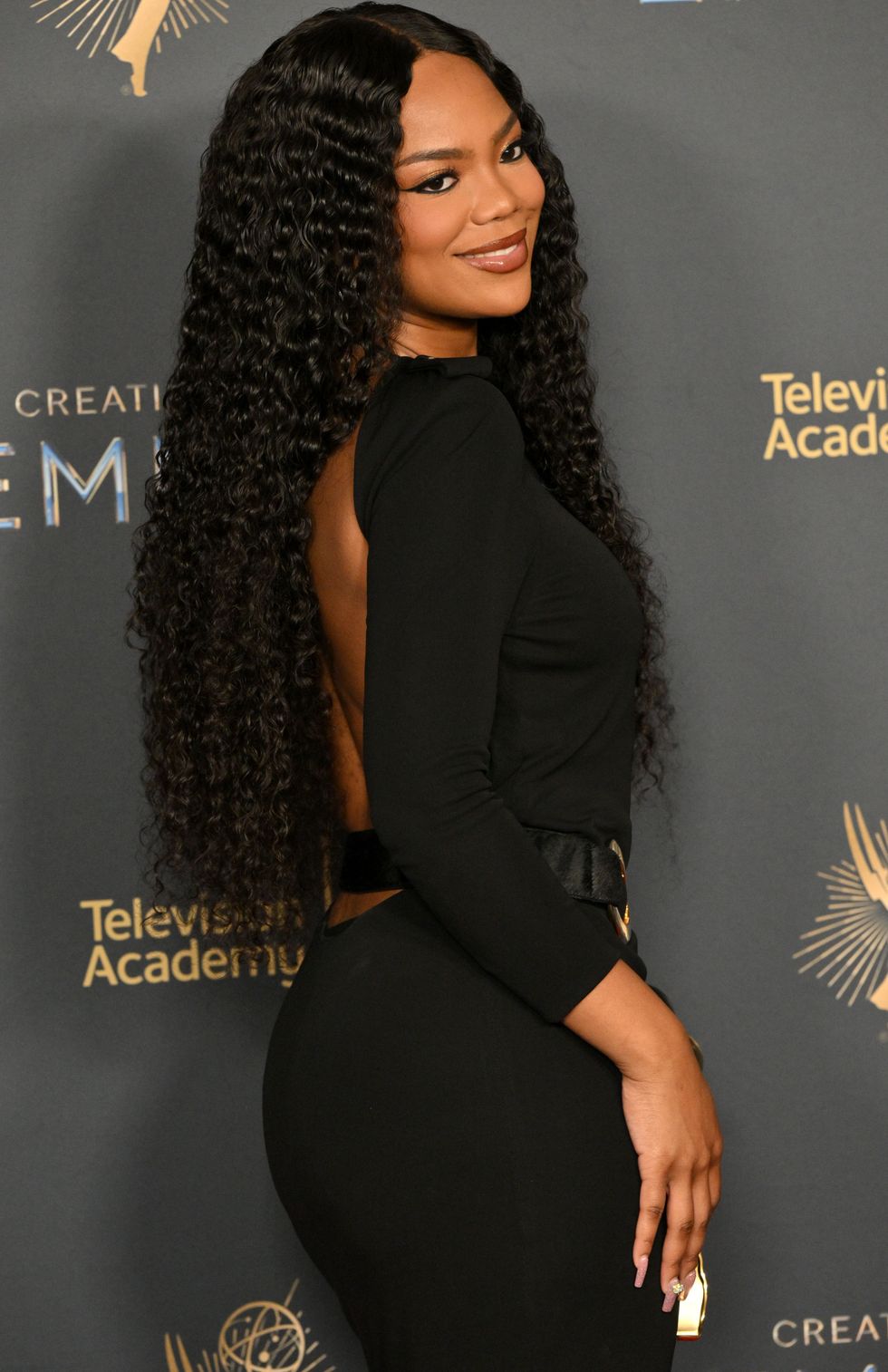
TV Personality Riley Burruss
Shutterstock
Riley Burruss
Her Handle: @rileyburruss
Her Title: TV Personality
Who's That It Girl: We celebrate Riley Burruss as a rising creative and storyteller forging her own space in entertainment. Fresh out of NYU with a degree in music business, she’s building momentum through Next Gen NYC and her podcast The Burruss Banter, all while exploring a future in entertainment law.
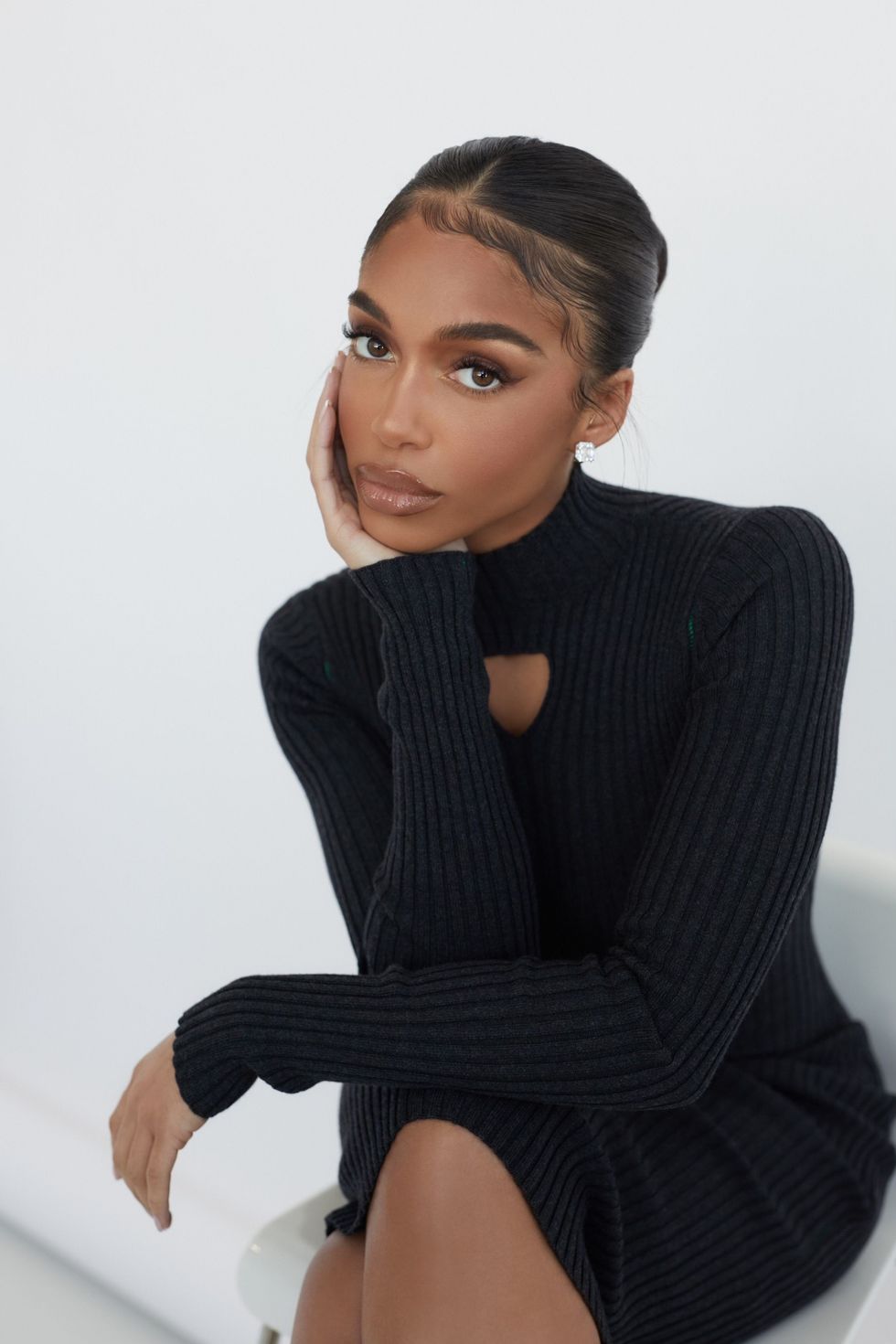
Entrepreneur, Actor, Model, Style Icon and Entrepreneur Lori Harvey
Credit:
Lori Harvey
Her Handle: @loriharvey
Her Title: Beauty Entrepreneur, Actor, Model, Style Icon and Entrepreneur
Who's That It Girl: Lori Harvey embodies modern femininity and independence. We celebrate her for turning self-love into legacy and for inspiring women to walk confidently in their own power.
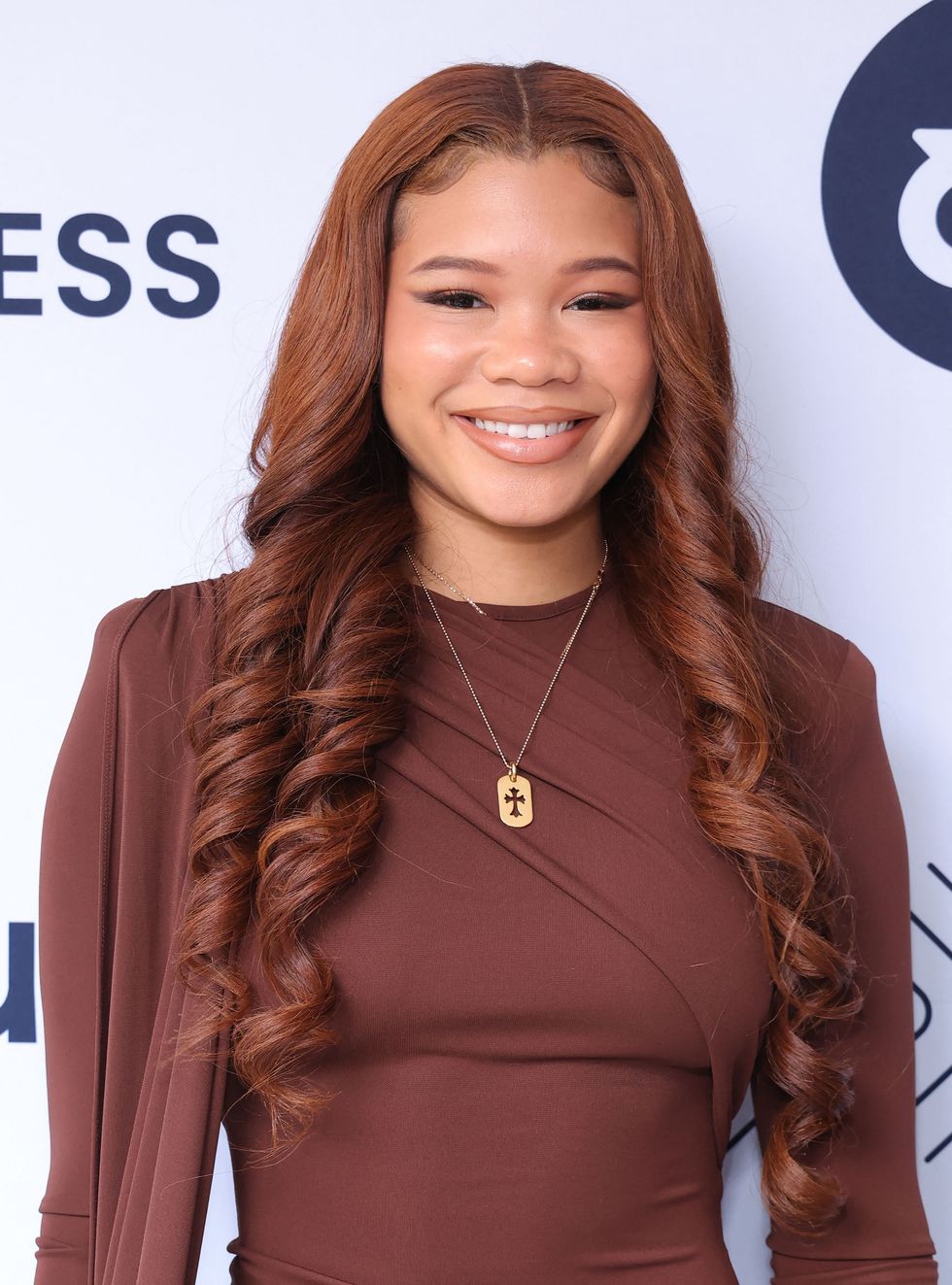
Actress Storm Reid
Shutterstock
Storm Reid
Her Handle: @stormreid
Her Title: Actress
Who's That It Girl: Storm Reid radiates brilliance far beyond her years. We love her for bringing compassion, creativity, and courage to every role, a true beacon for young women dreaming of changing the world through art.
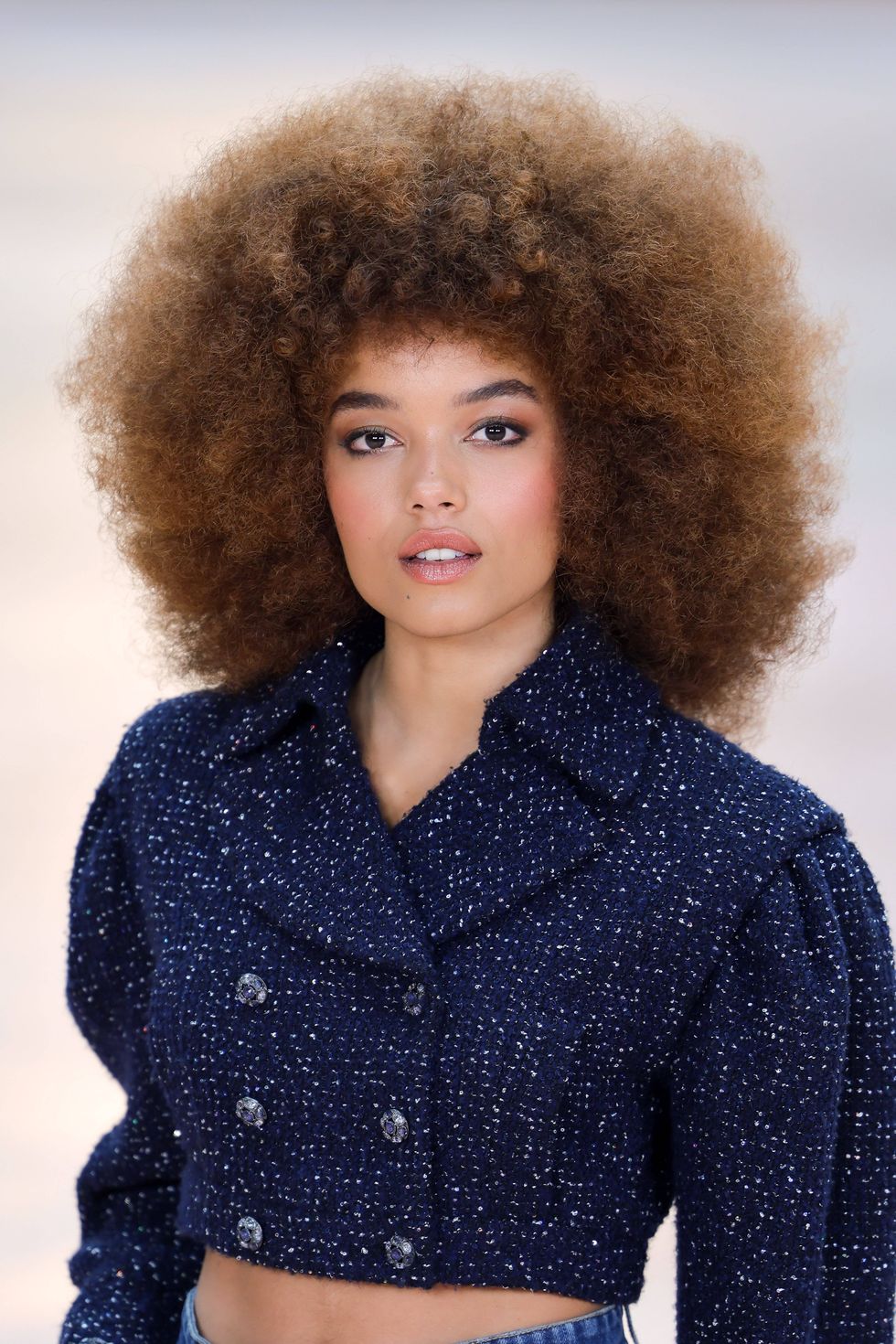
Actress Whitney Peak
Shutterstock
Whitney Peak
Her Handle: @whitneypeak
Her Title: Actress
Who's That It Girl: Whitney Peak exudes quiet confidence and magnetic charm. We celebrate her for redefining modern cool and for reminding young women that authenticity is the most timeless form of beauty.
Tap into the full It Girl 100 Class of 2025 and meet all the women shaping the culture this year and beyond. See the full list here.
Featured image by xoStaff









